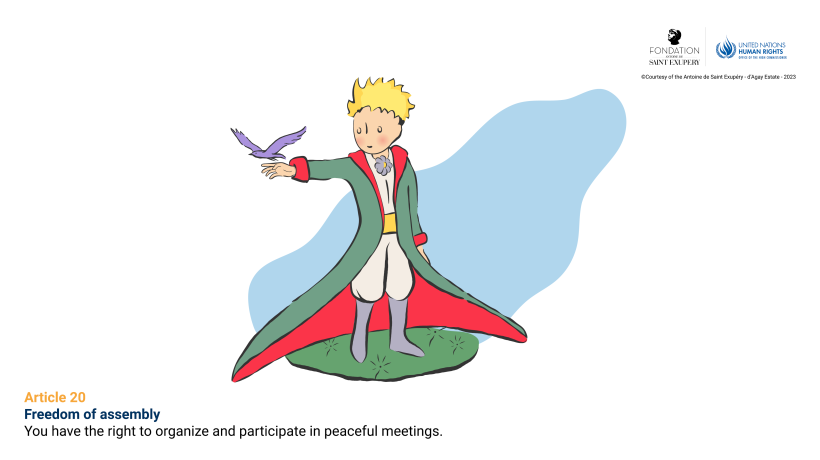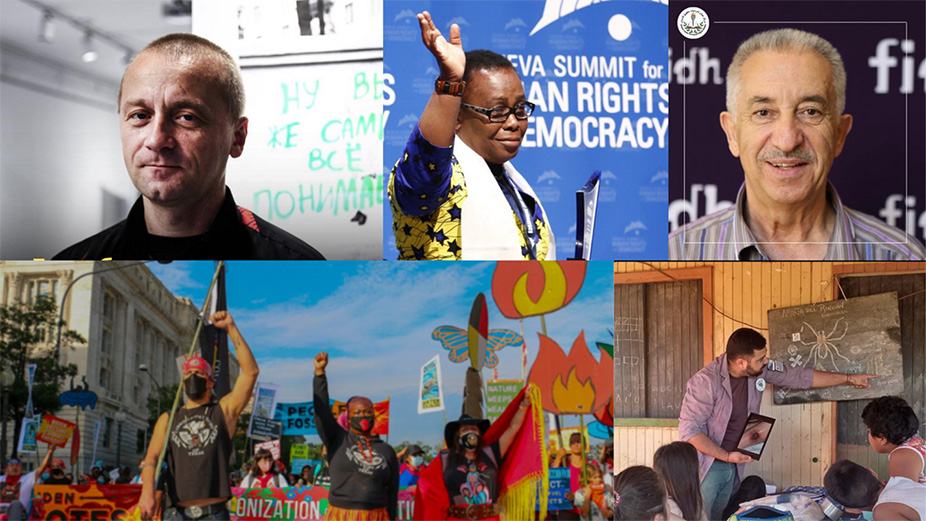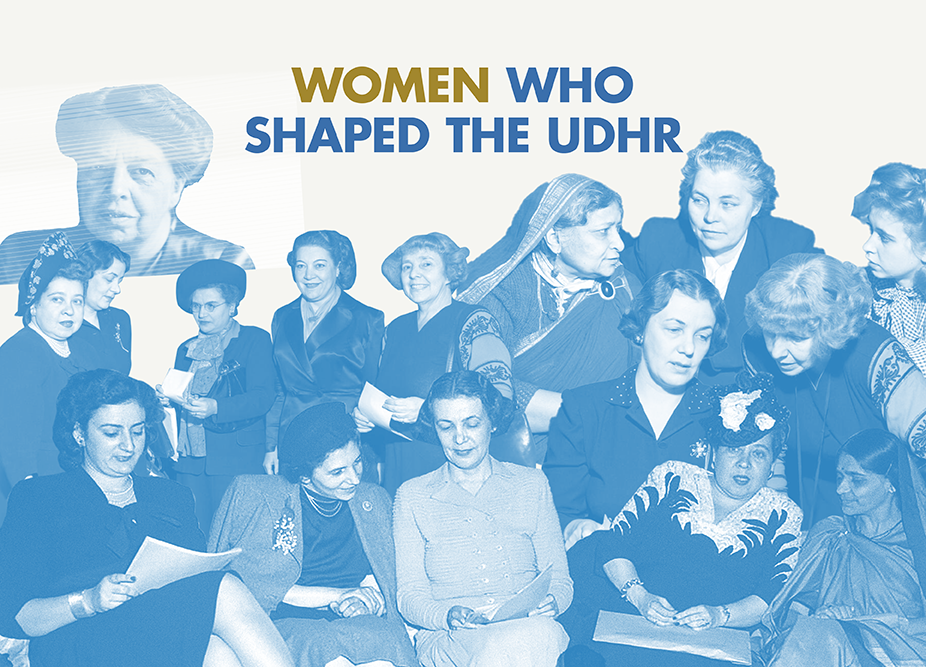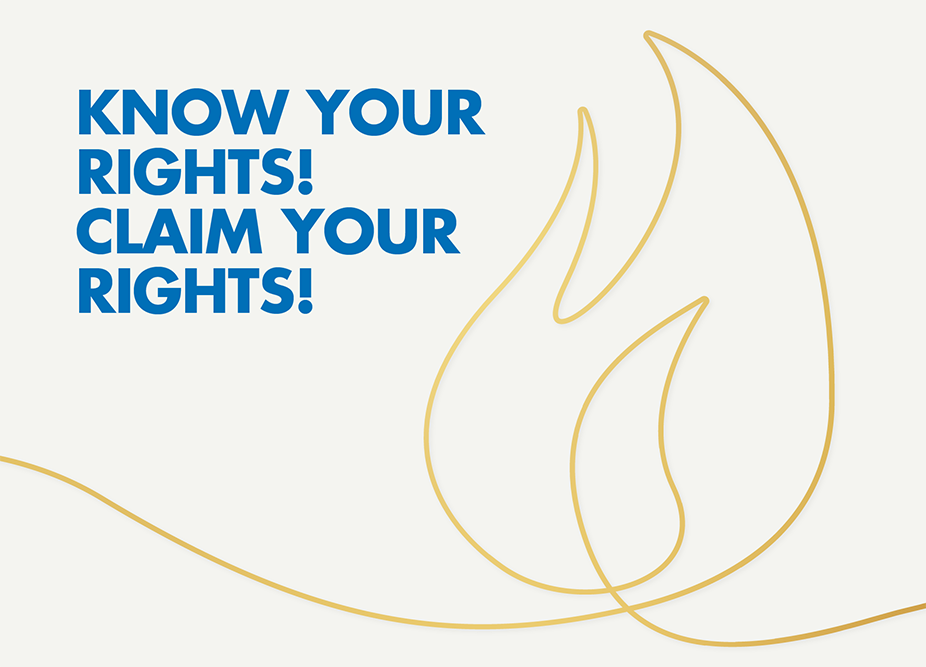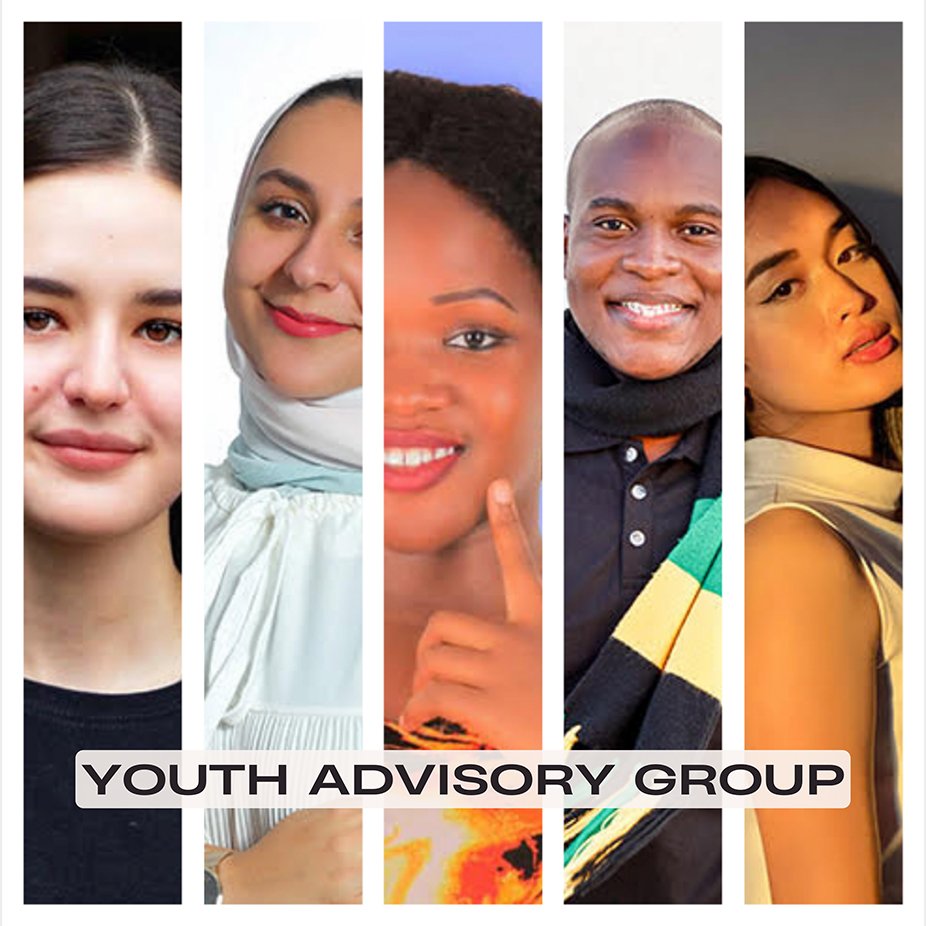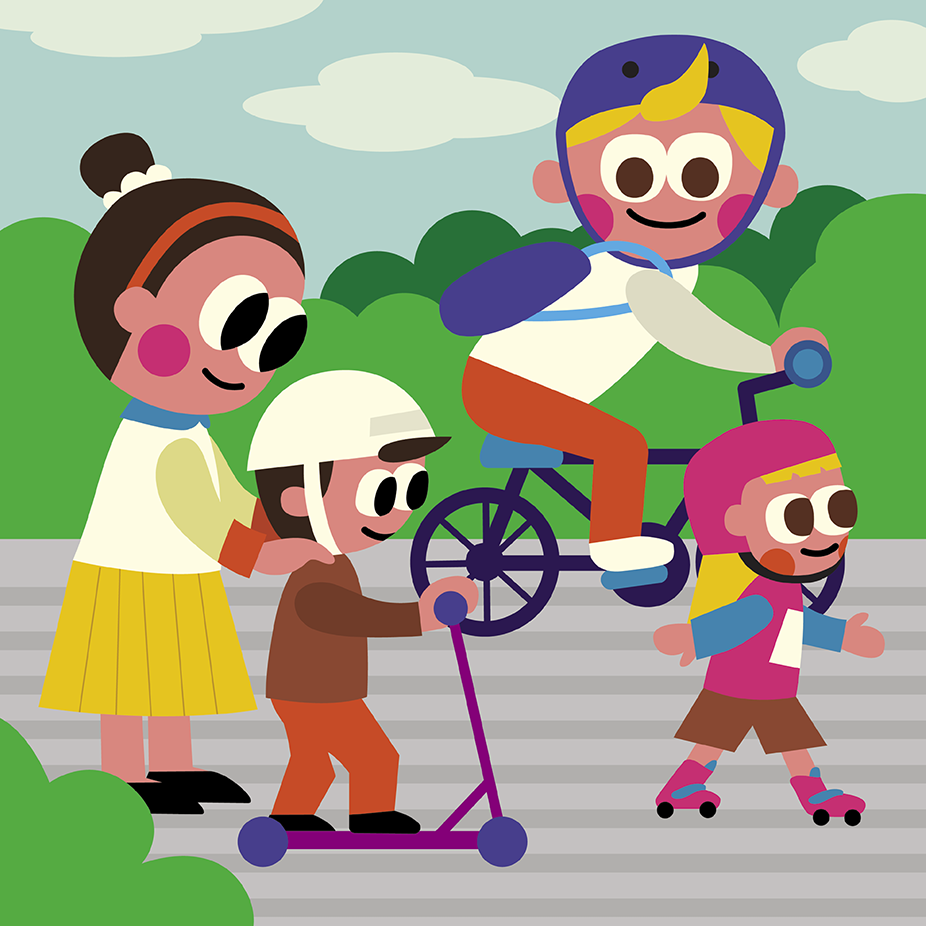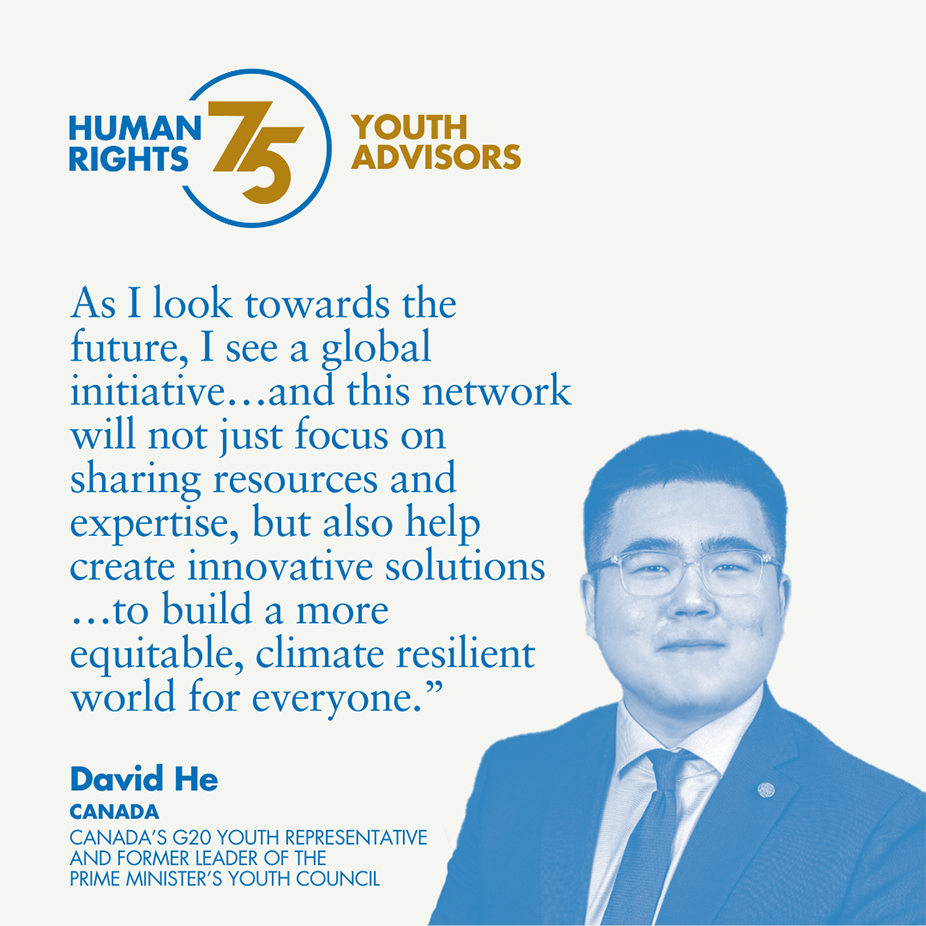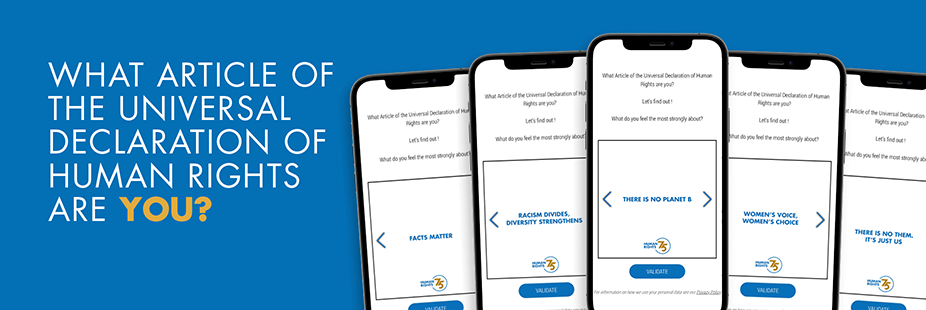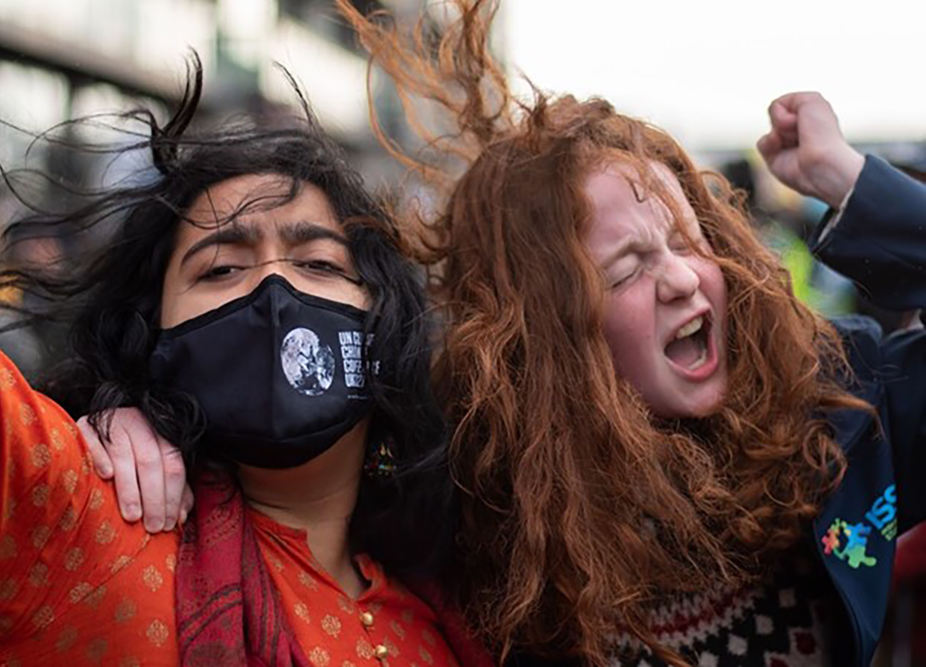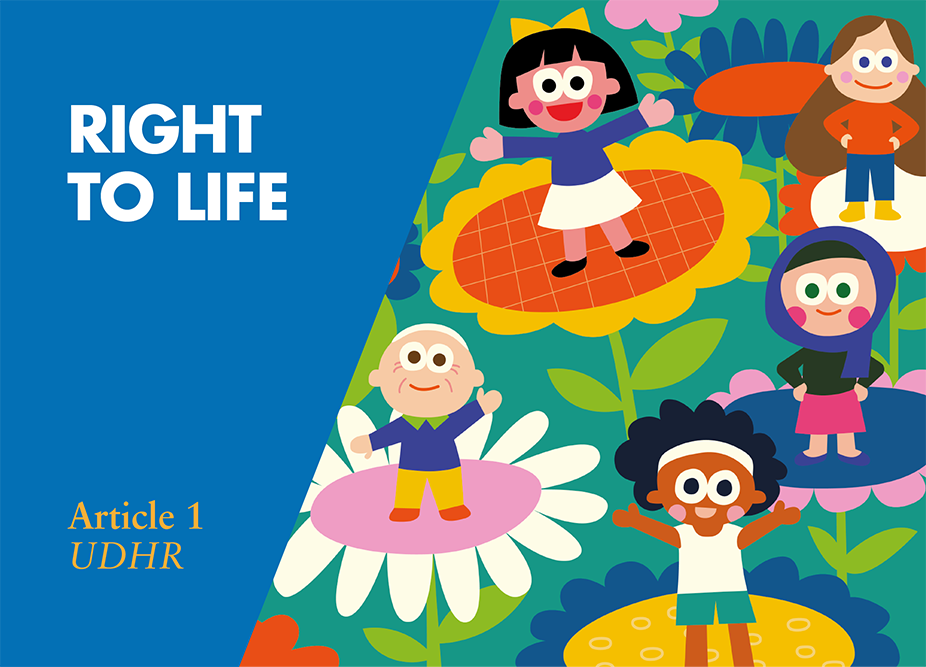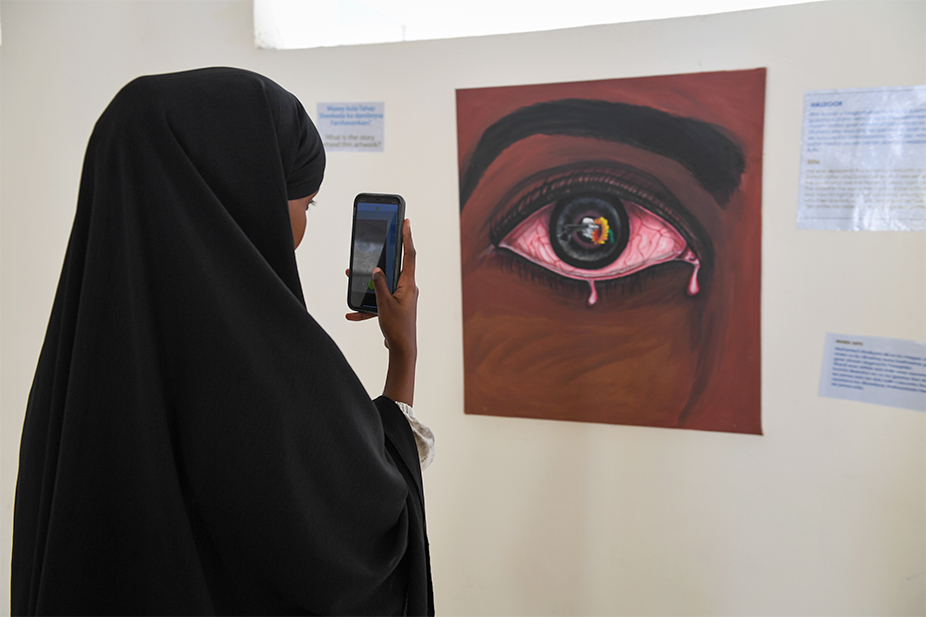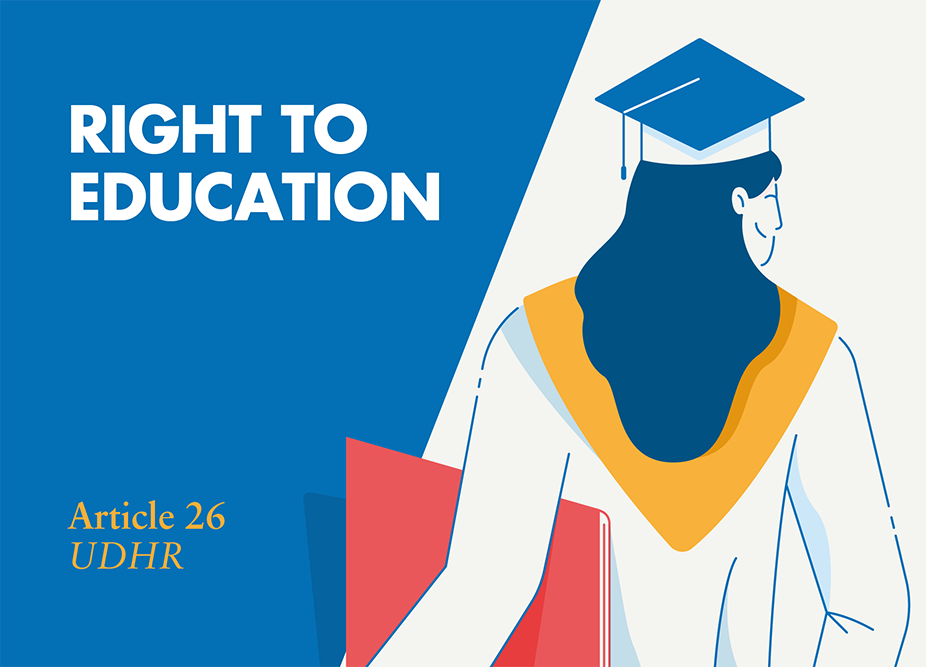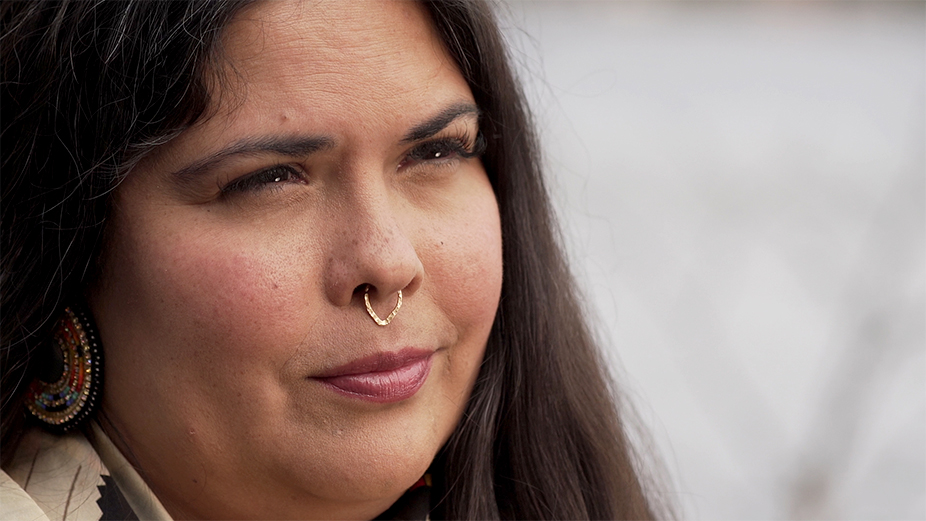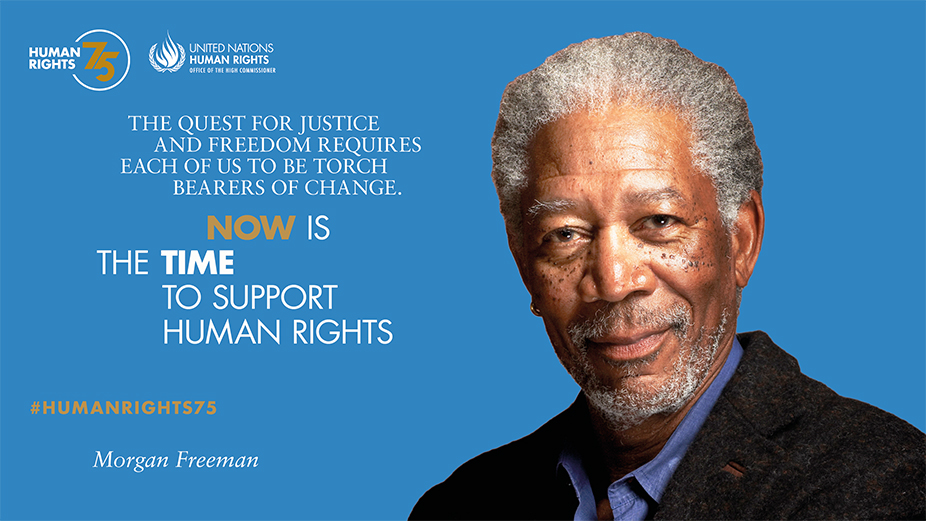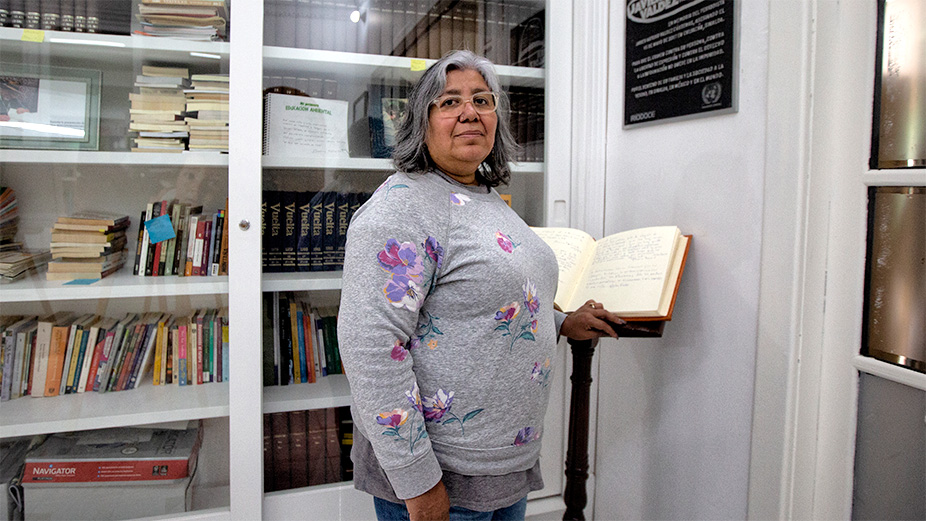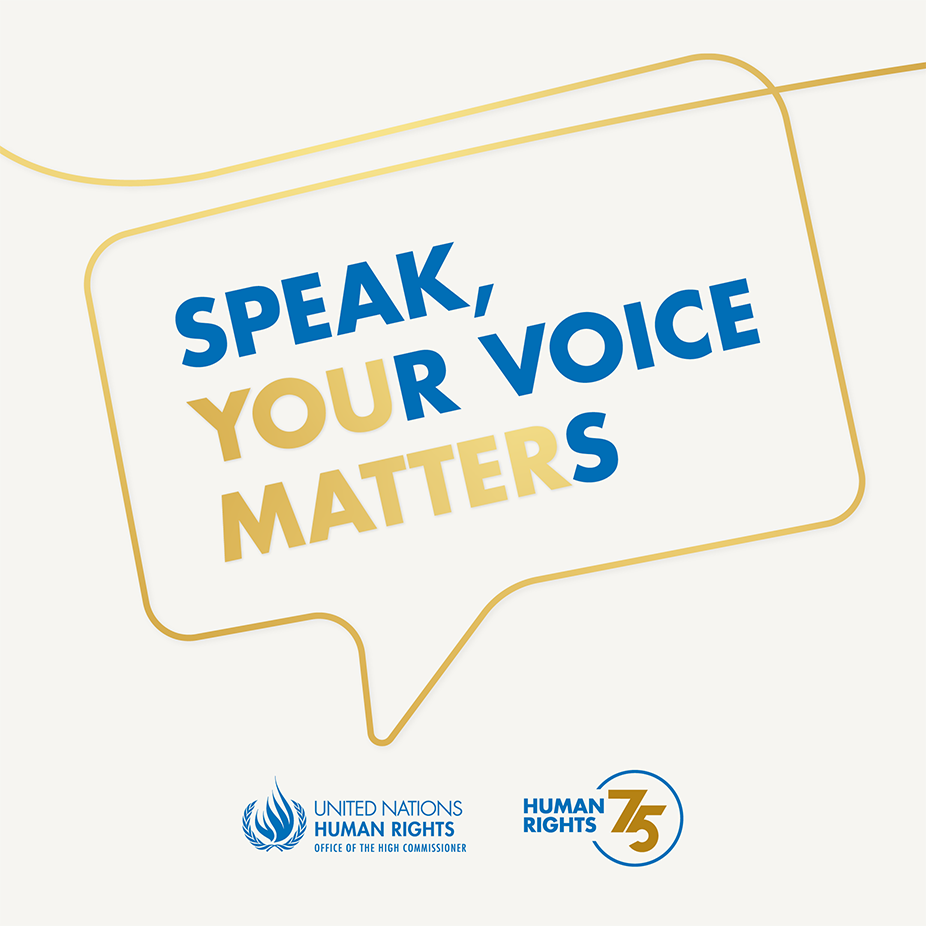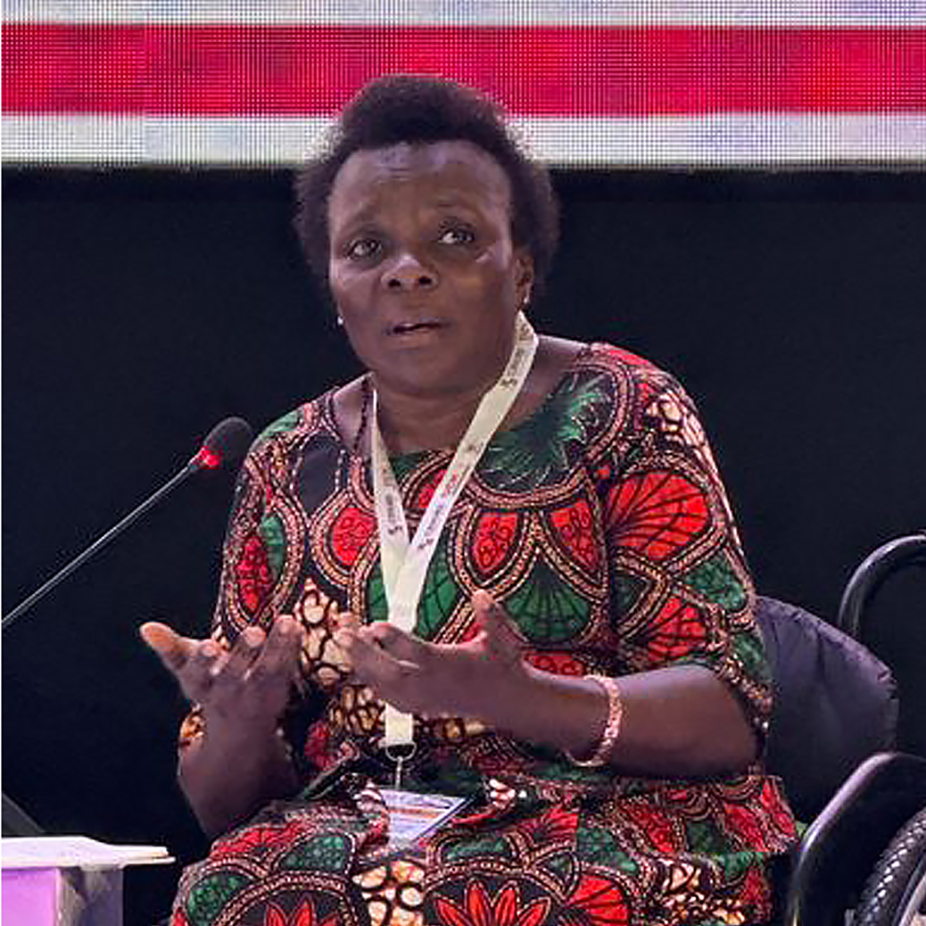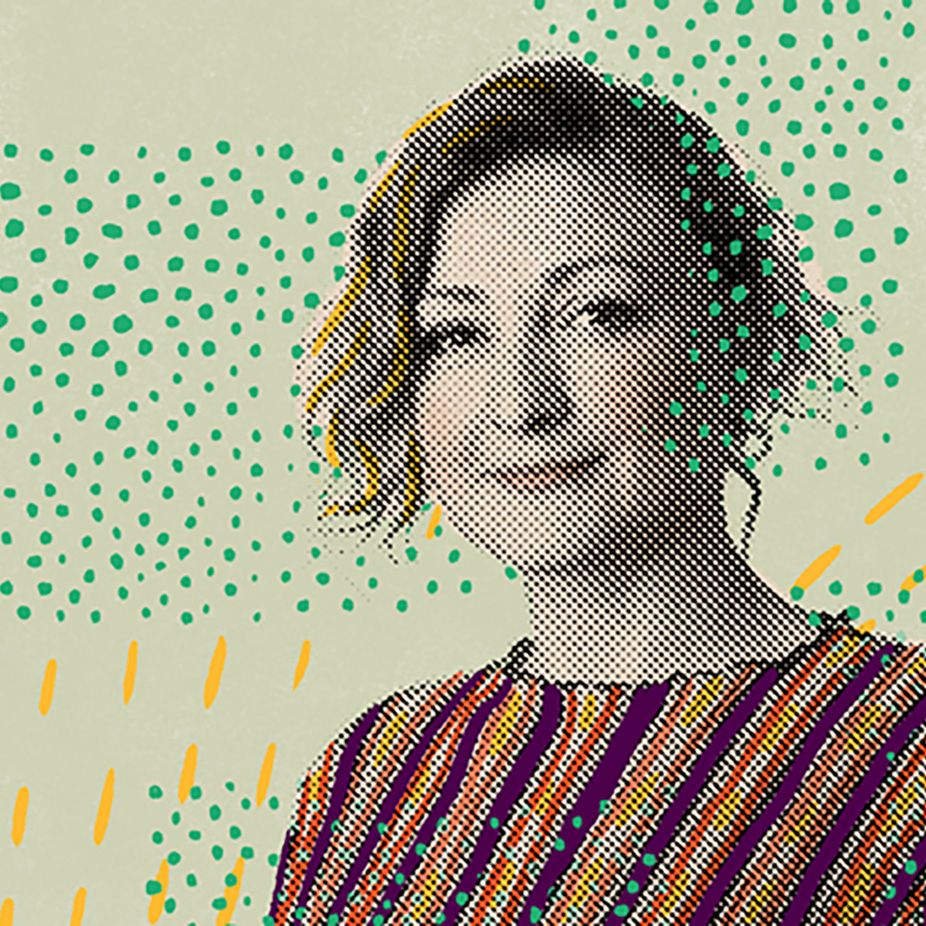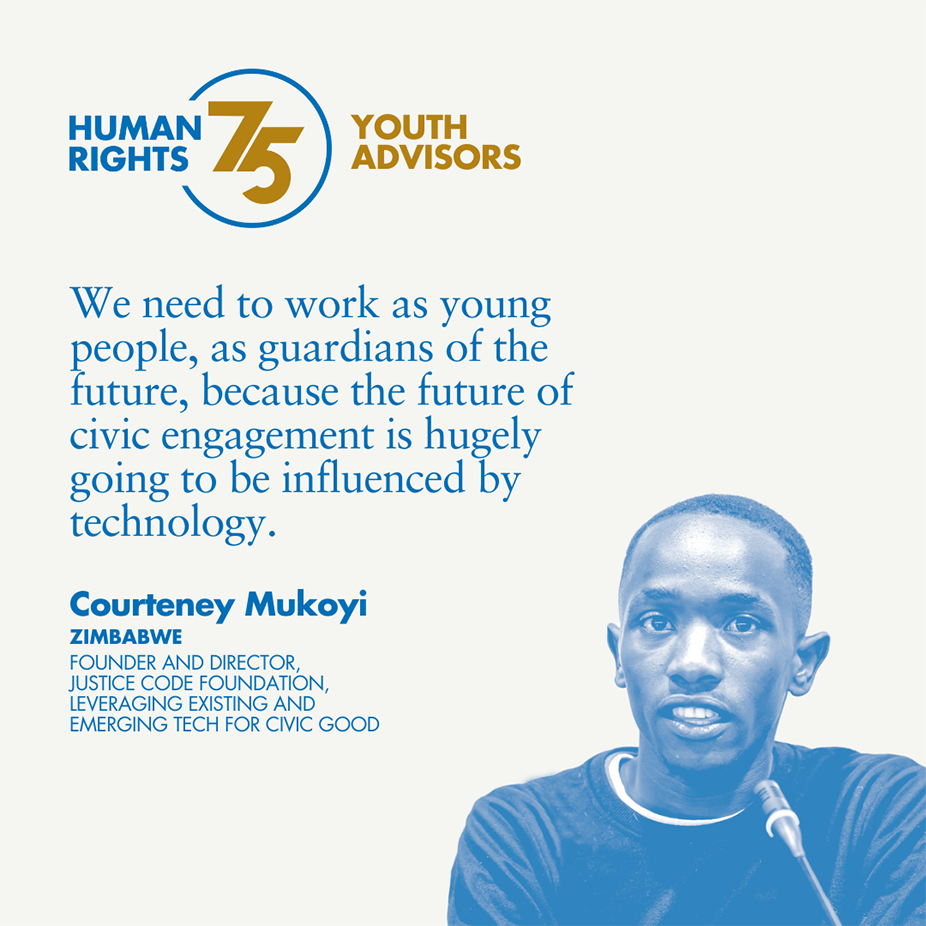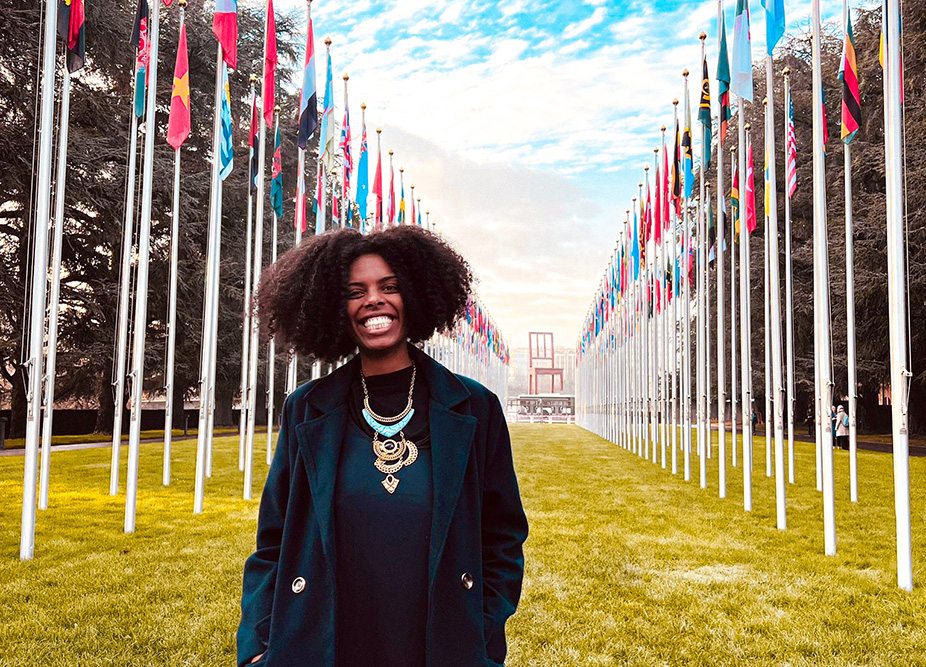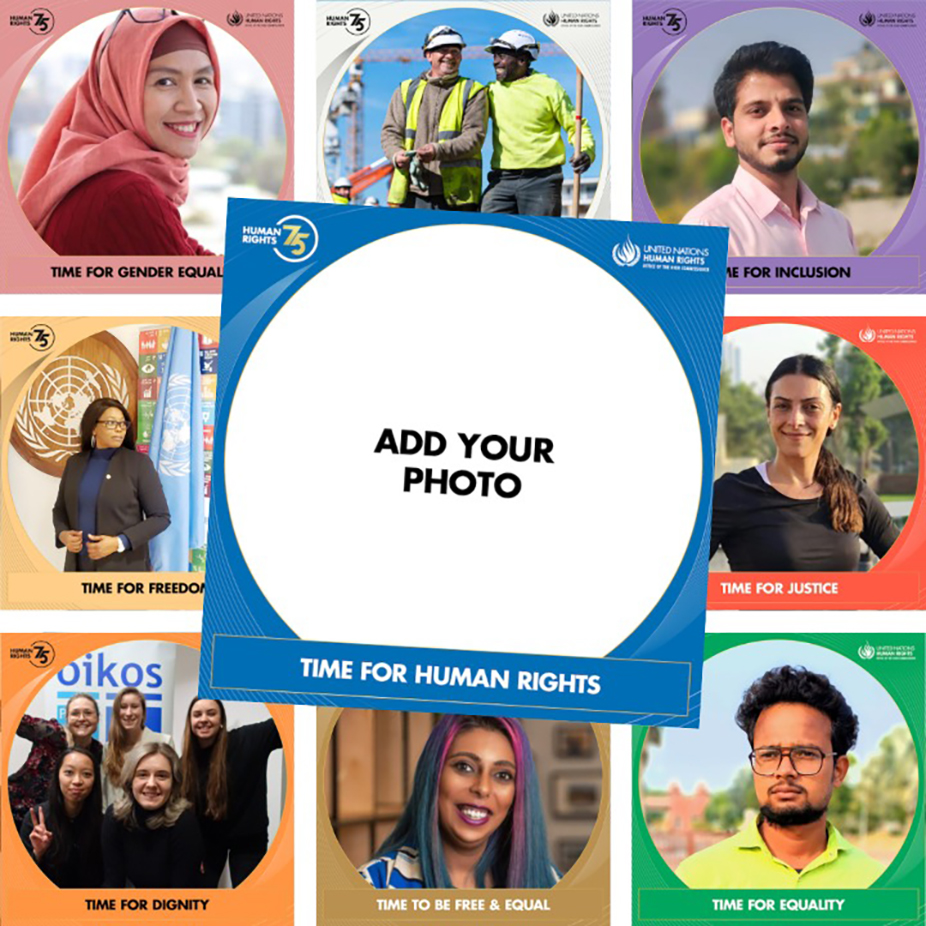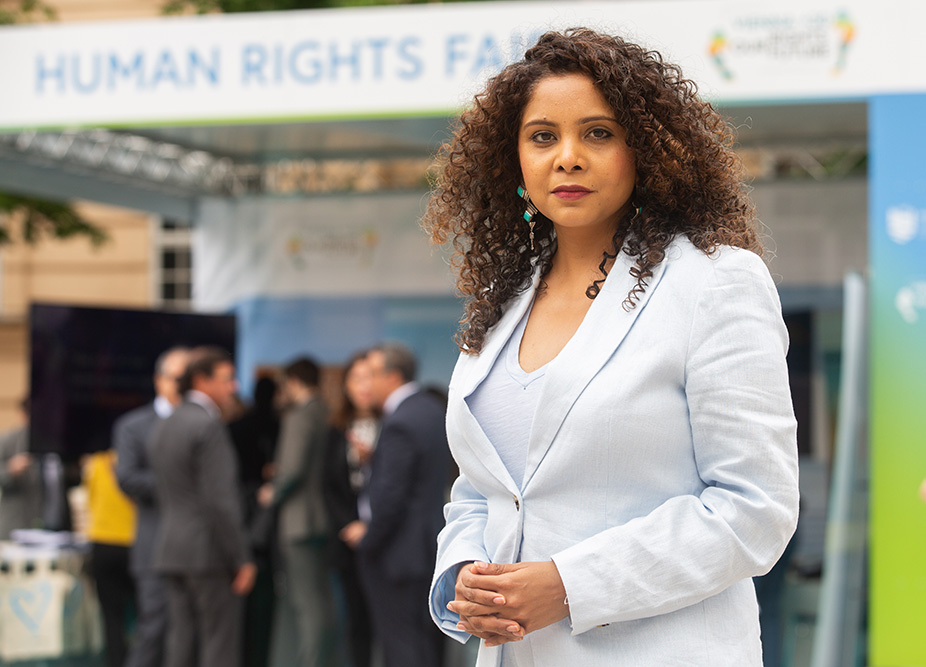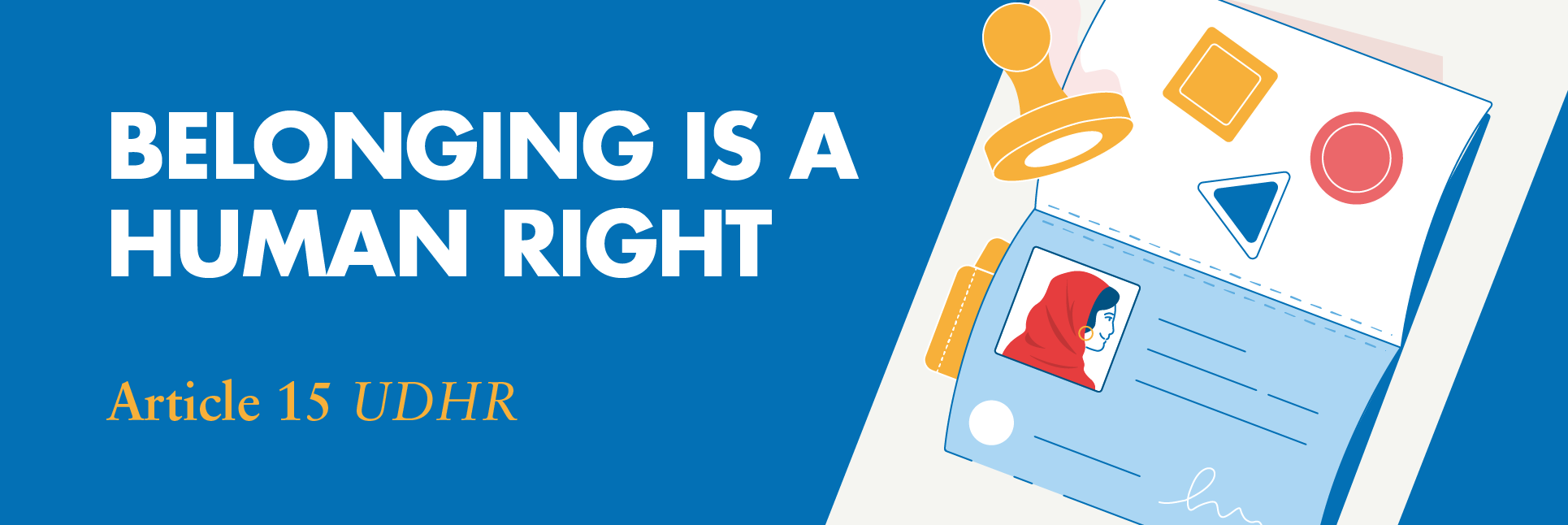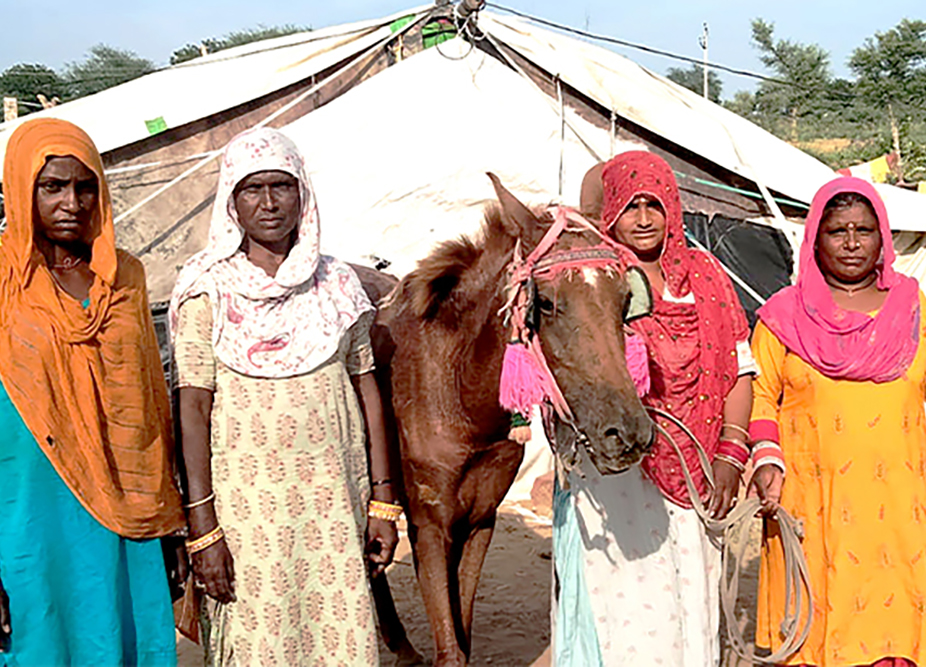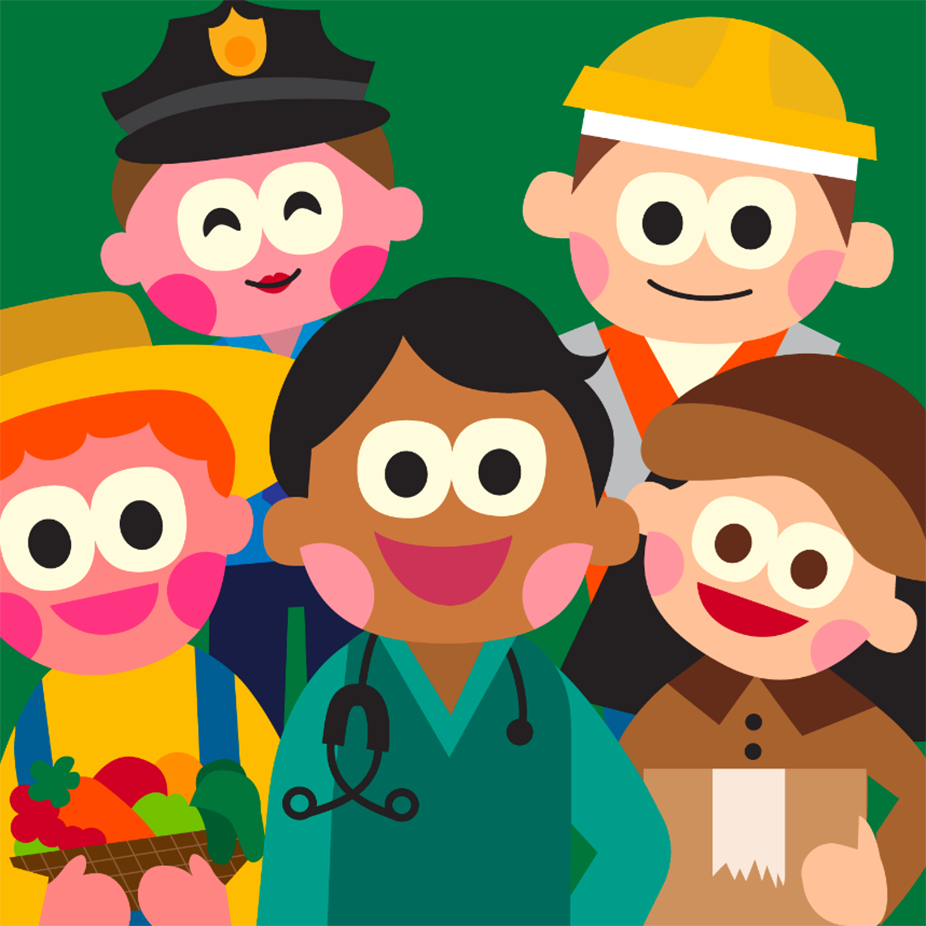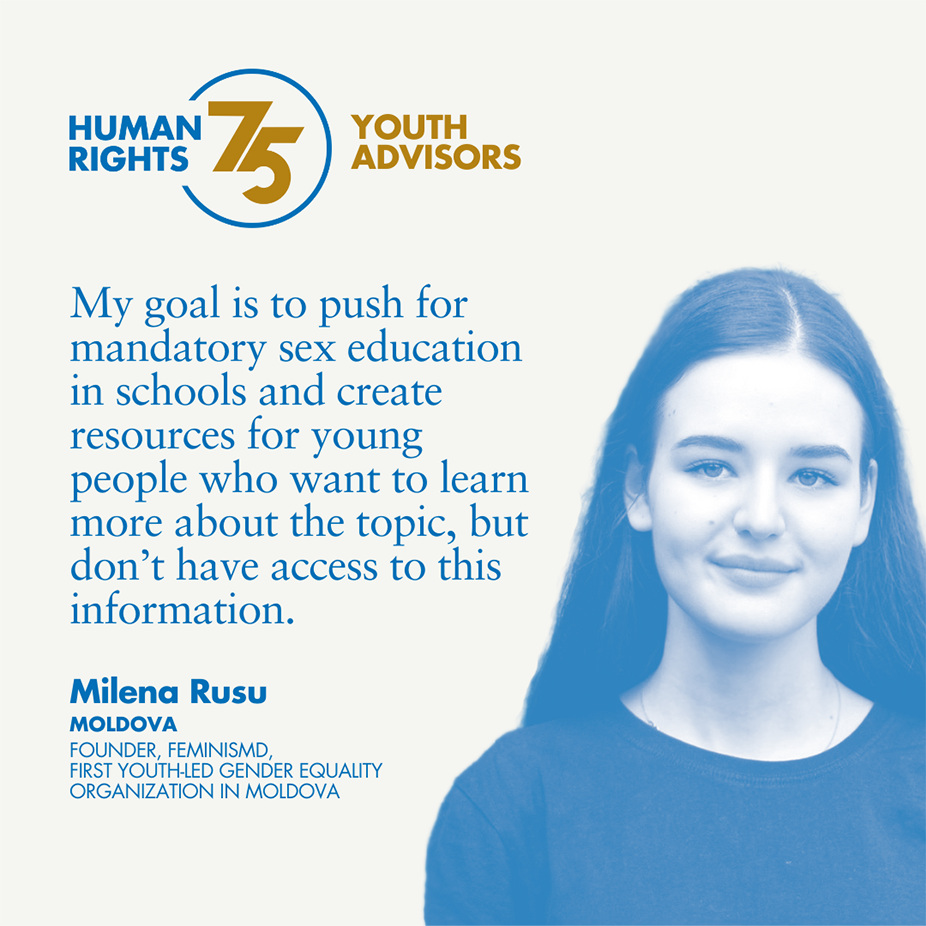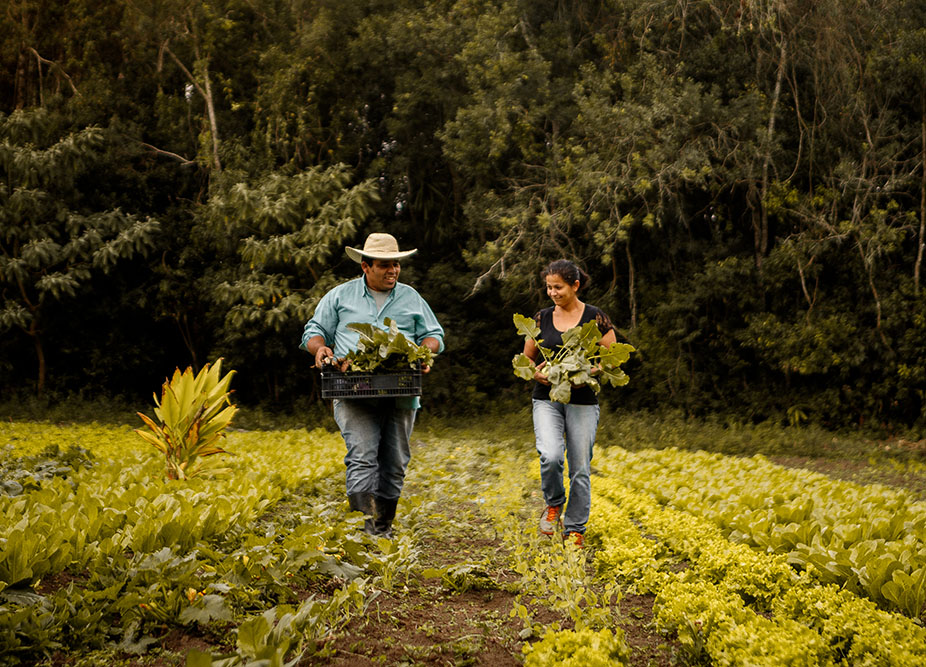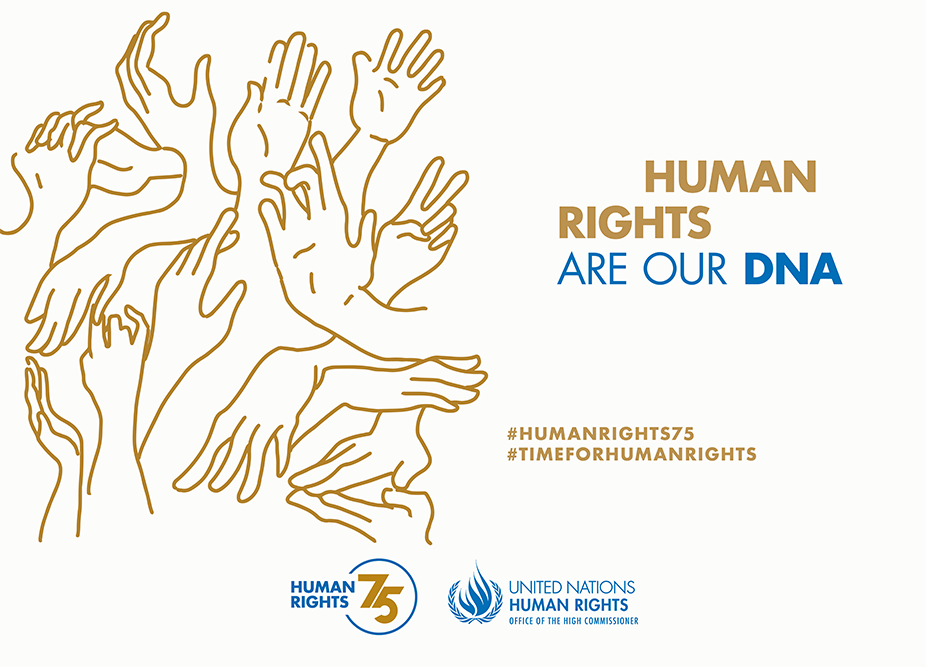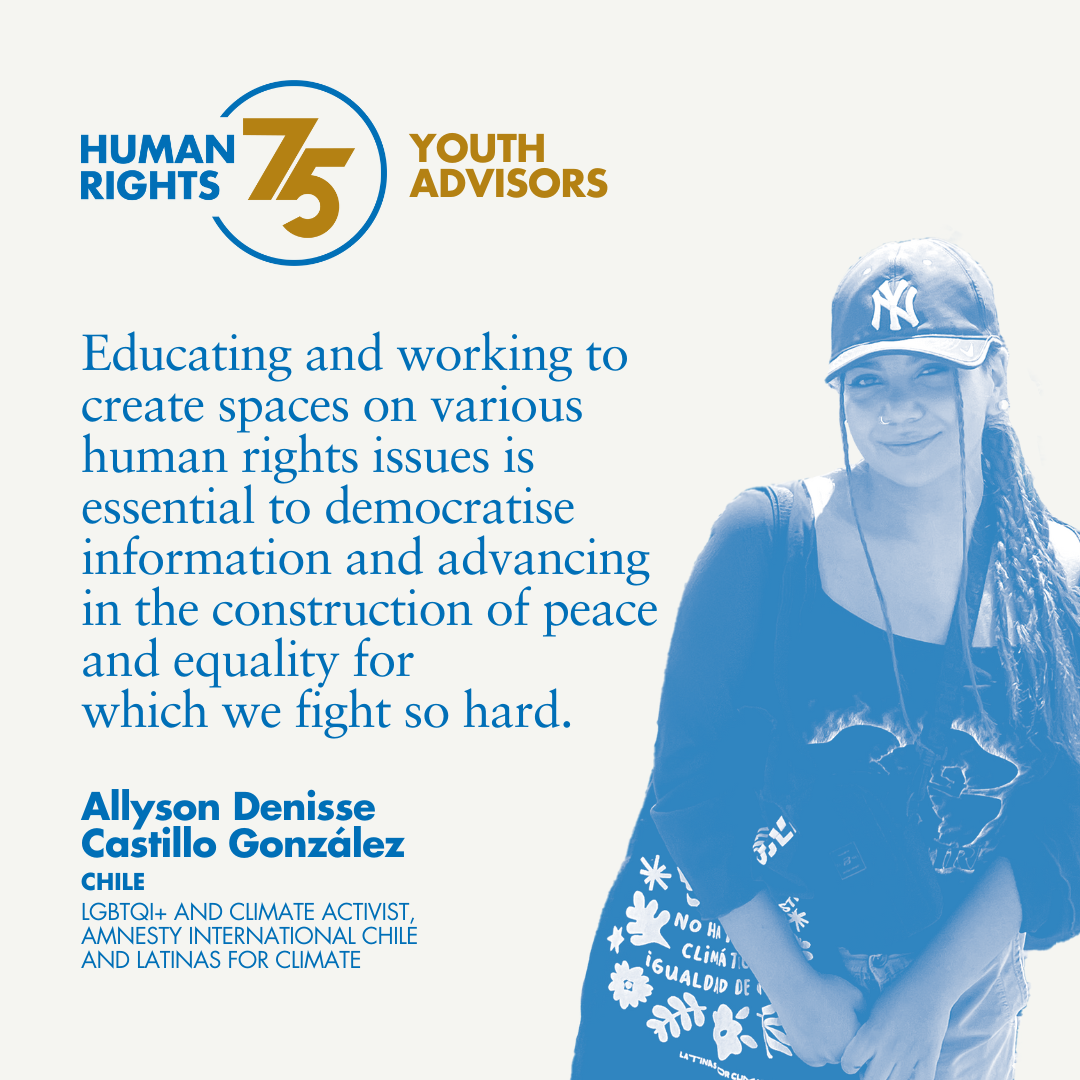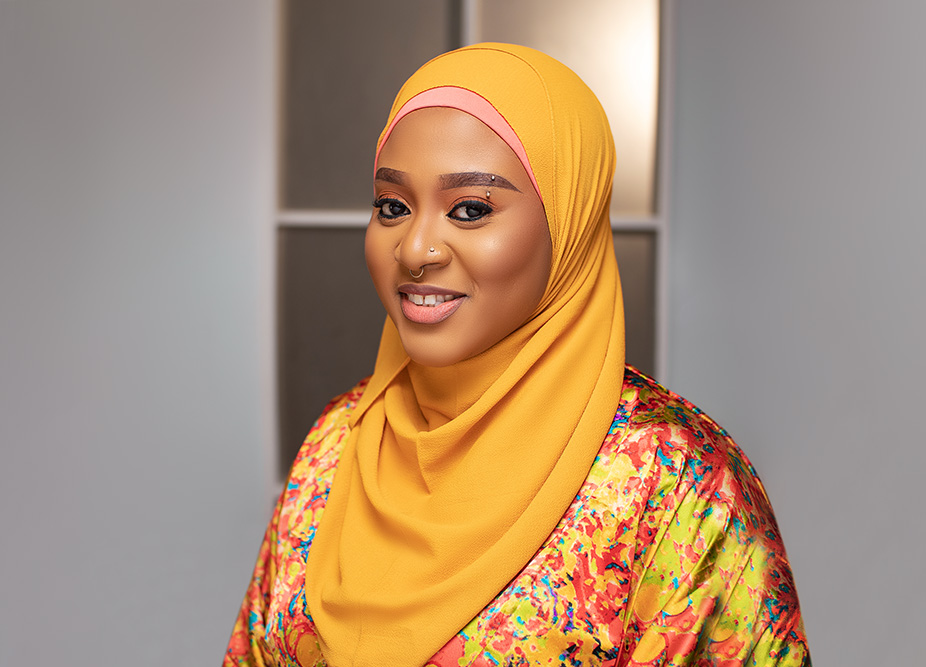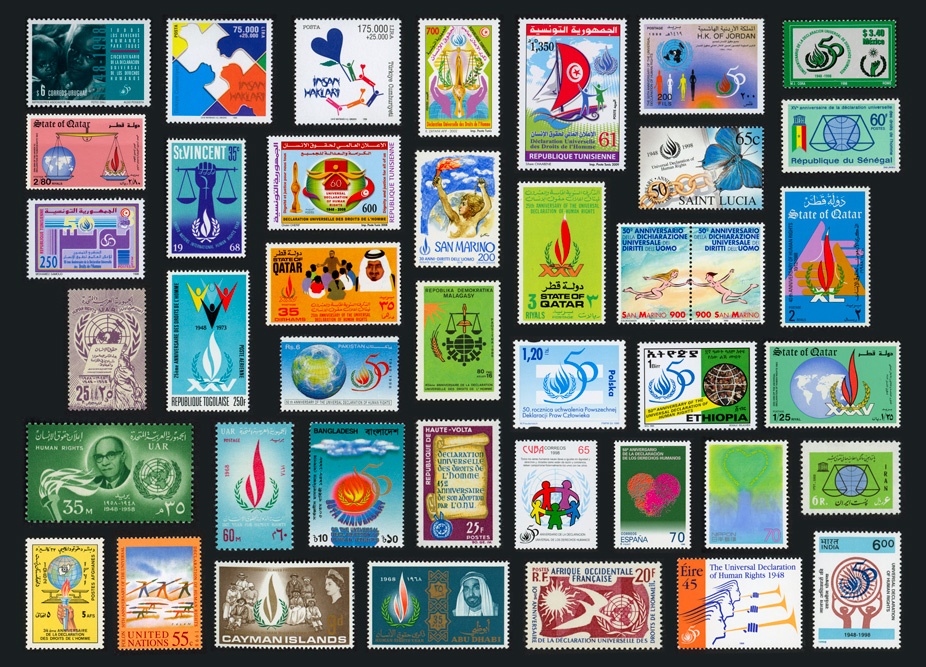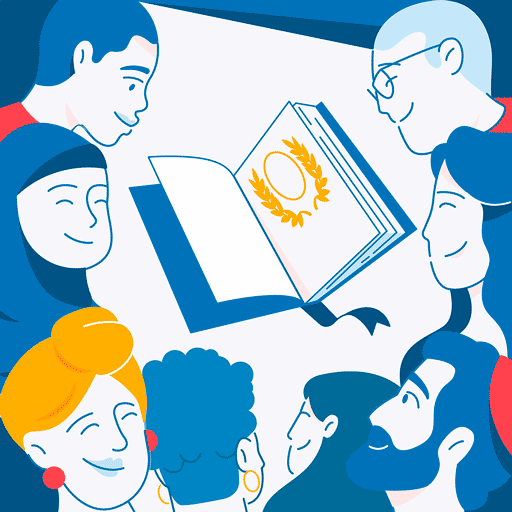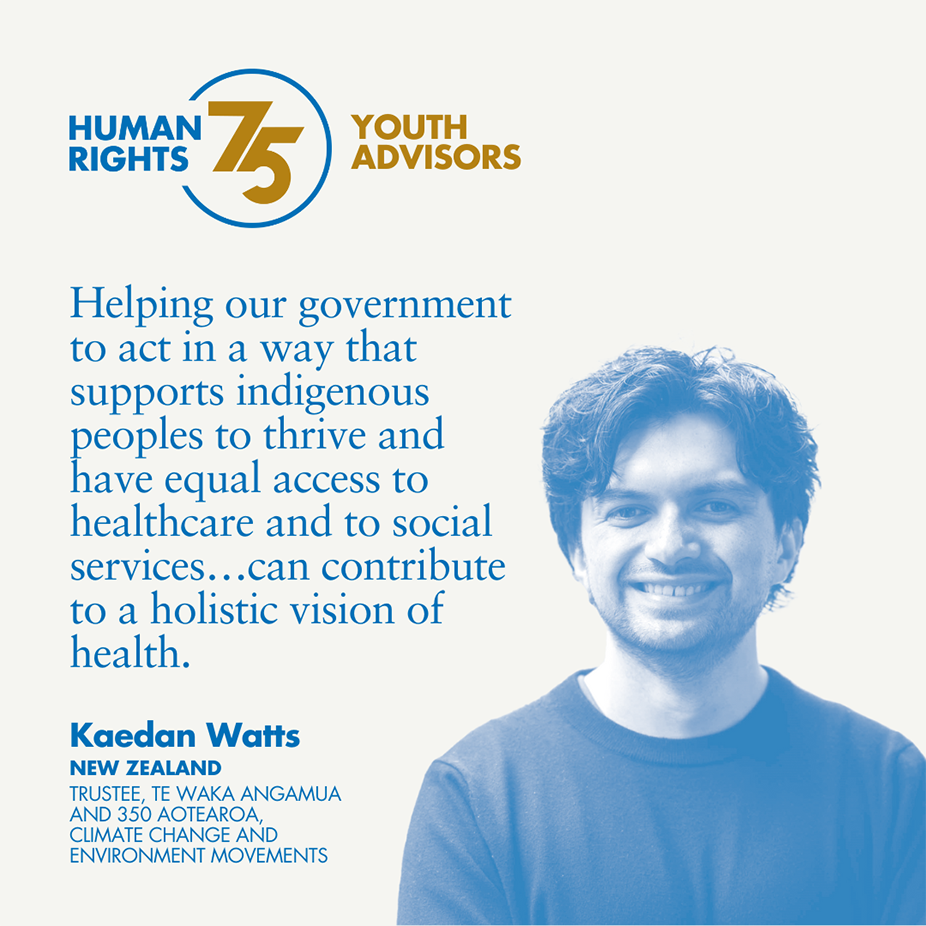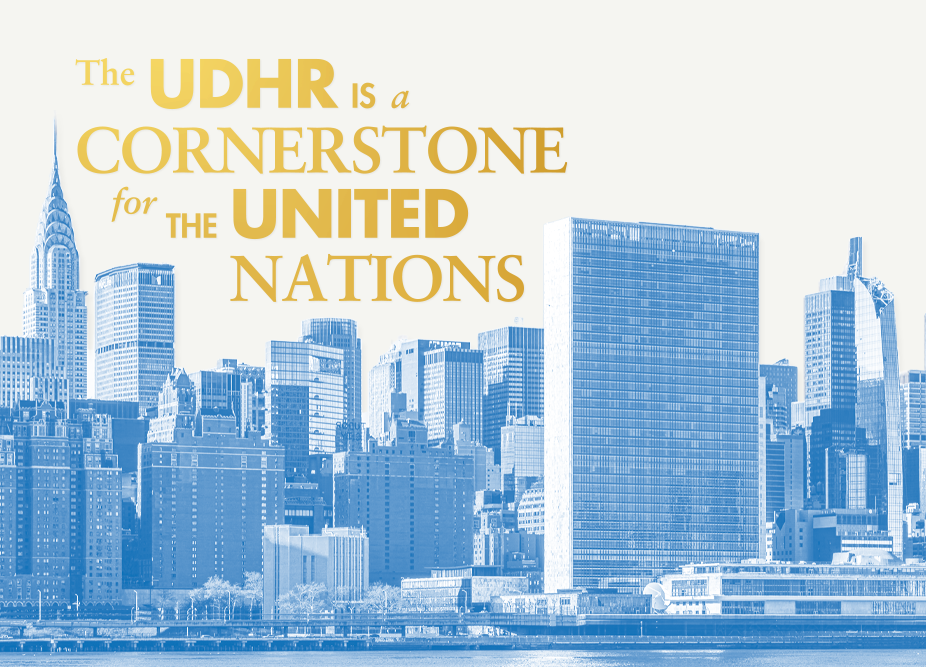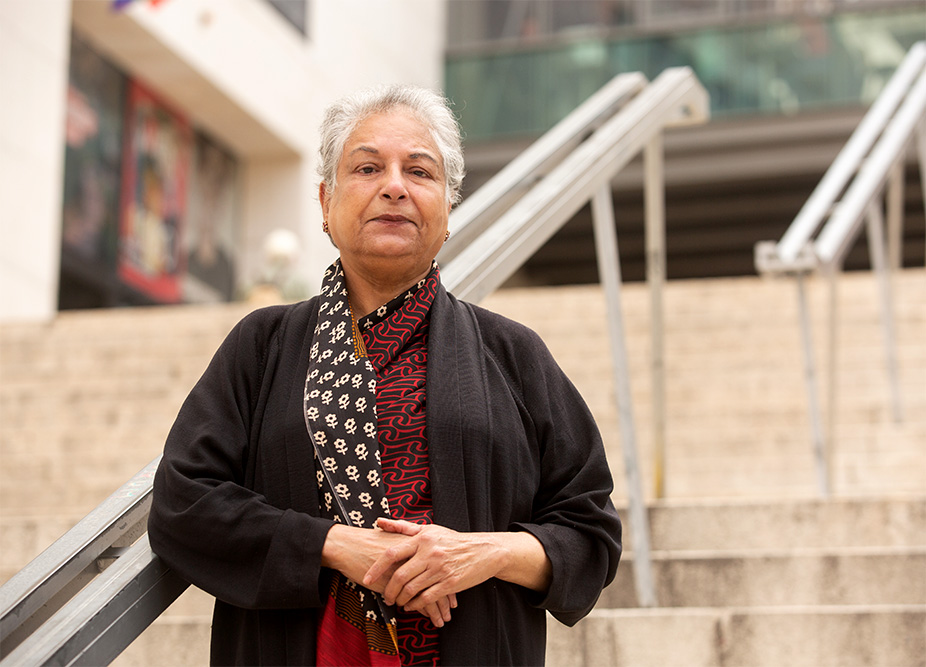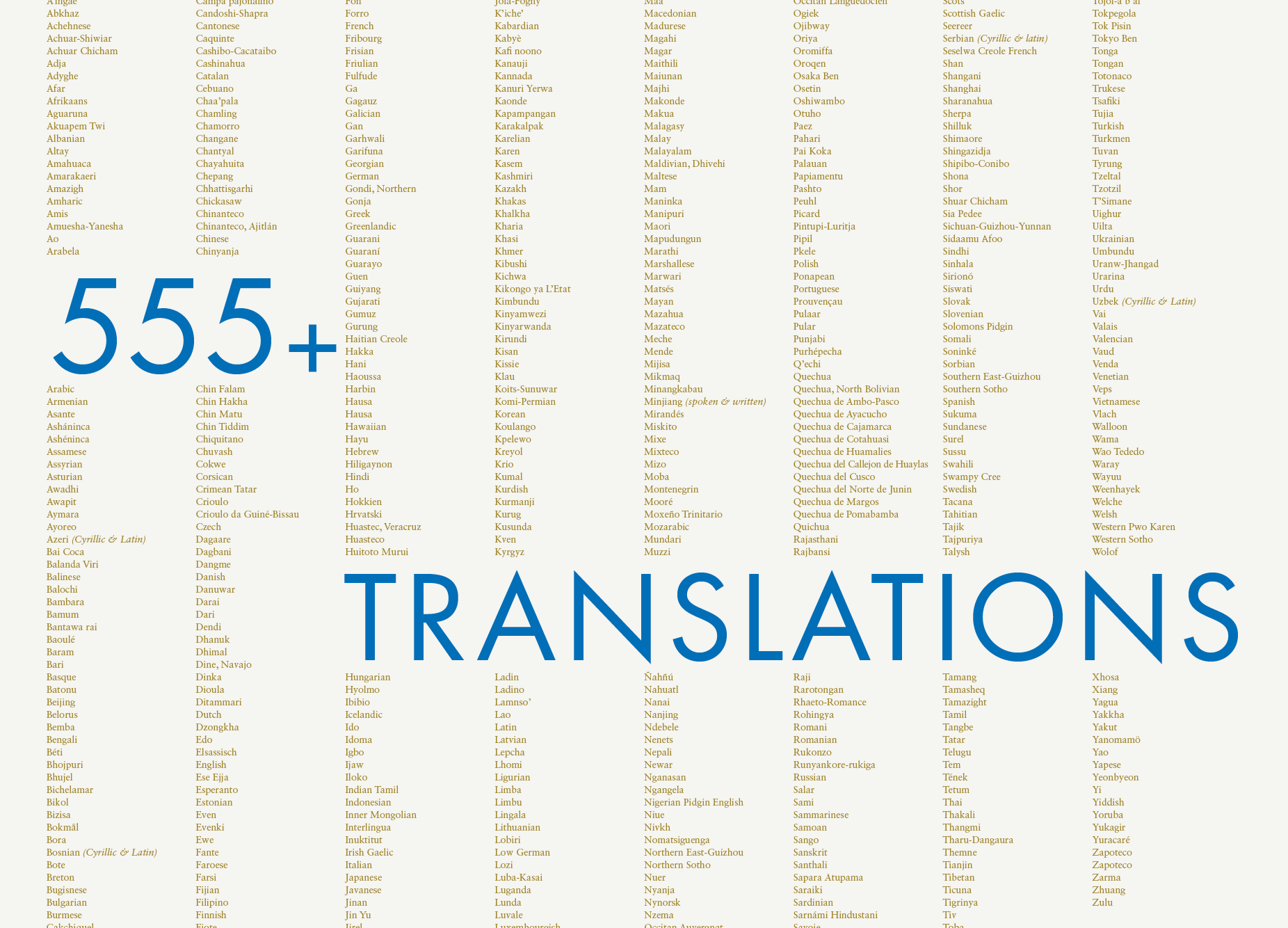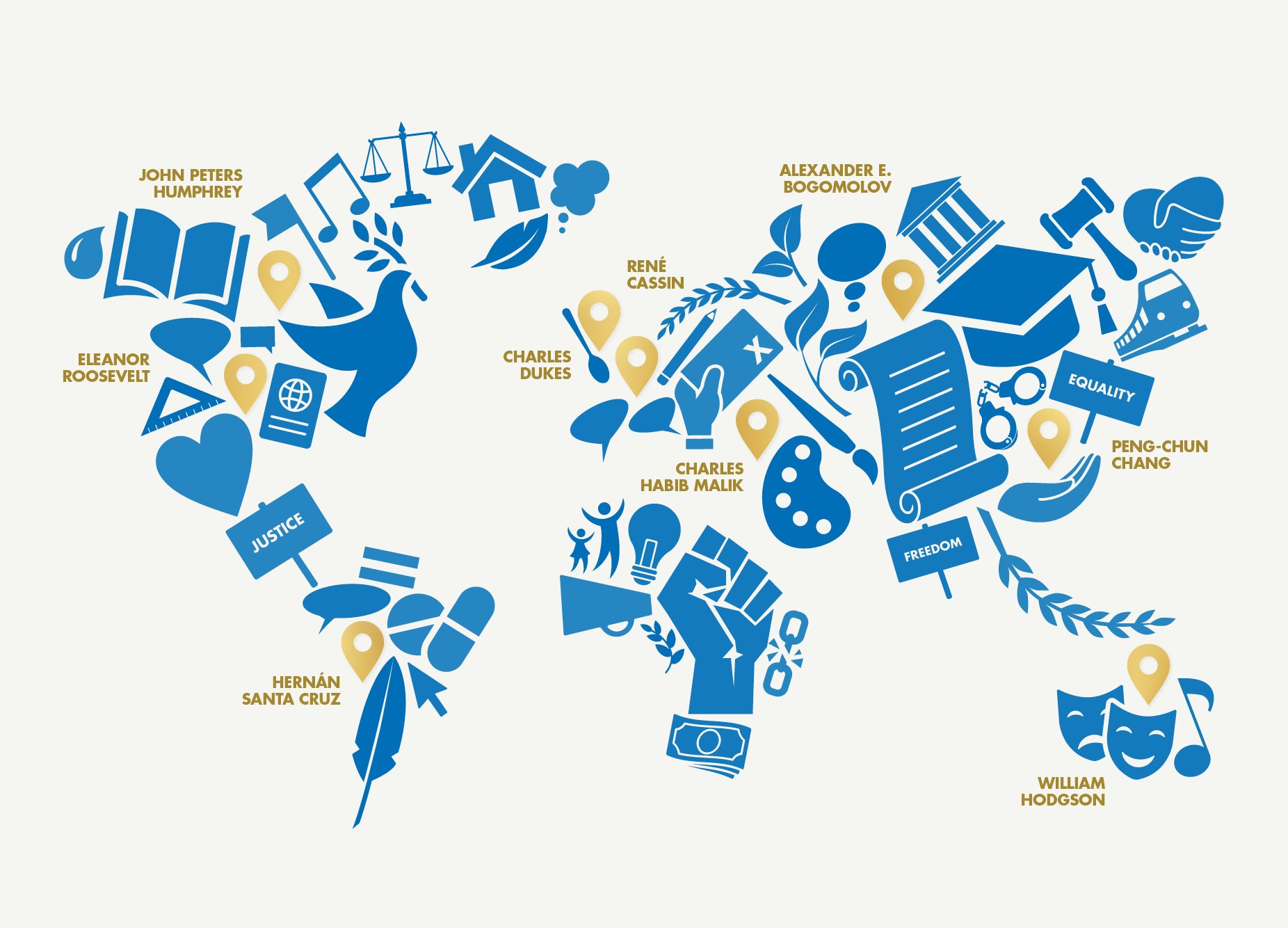Human Rights 75 Countdown
Human Rights 75 Initiative
Our countdown to Human Rights Day featured information to inform, inspire and generate action for human rights.
Day 0: The time for human rights is now!
“The Universal Declaration of Human Rights is a blueprint for a better future,” says Morgan Freeman, who narrates this call for action, commemoration and understanding.
Today, Human Rights Day marks the 75th Anniversary of the Universal Declaration. If there was ever a moment to rekindle the hope of human rights for everyone, it is now. Human Rights 75 has been a year-long look at ways to reinvigorate human rights, showing the ways it meets the needs of our time, while advancing the Declaration’s promise of freedom, equality and justice for all. The countdown may be at an end, but now is the time to hear the pledges and look to the future of human rights in the High Level Event starting tomorrow 11 December. Join us and hear what recommitments to human rights are made.
Day 01: Get involved, join the debate on the future of human rights, development and the economy
Todd Howland, UN Human Rights Chief of Development, Economic and Social Rights branch, highlights the importance of creating a human rights economy. To learn more about creating a world free from want and fear, register for the HR75 high-level event and join the experts online for the roundtable on the future of human rights, development and the economy on 12 December from 15.00 – 17.00, Geneva time.
Day 02: Get inspired by dancer Ahmad Joudeh as he unites refugees in their quest for peace.
Dancer and choreographer Ahmad Joudeh was born and raised in Syria as a stateless refugee. In 2016, he moved to Amsterdam with the help of the Dutch National Ballet. Since 2017, he has taken his artistry to stages around the world and has become a voice for refugees as a High Profile Supporter for the UN Refugee Agency (UNHCR) and an International Friend for SOS Children's Villages International. On 10 December, he will be showcasing his talent at the HR75 Human Rights Day concert in Geneva, Switzerland and participating in the HR75 high-level event’s You Have the Floor session. Watch Joudeh virtually on 11 December at the session by registering for the high-level event.
Day 03: Get inspired by Damian Gallardo, indigenous rights activist and torture survivor.
More than 10 years ago, in May 2013, Damian Gallardo from Mexico, was arbitrarily detained, disappeared, and tortured. He was eventually released but lodged a complaint with the UN Committee against Torture, who reviewed Gallardo’s case and adopted an unprecedented decision stating that, in fact, Gallardo had been tortured.
Day 04: Get inspired by the Little Prince and the UDHR
UN Human Rights has teamed up with The Antoine de Saint Exupéry Youth Foundation to create a version of the Universal Declaration featuring illustration from The Little Prince. The partnership is to celebrate their dual anniversaries, as not only is it 75 years since the ratification of the Universal Declaration of Human Rights, but it is also 80 years since the first publication of Le Petit Prince (The Little Prince). The book and the UDHR have much in common: both are highly translated – with the Little Prince being translated into more than 550 languages and dialects while the UDHR’s translations reach more than 555. Both were born of a time of great global turmoil. And both impart messages of hope and dignity that are available for all. Above is an illustration of Article 20 of the Universal Declaration as interpreted by an illustration from the Little Prince.
Day 05: Get inspired by Louiza, 15, who won the right to attend school
Louiza a 15-year-old, was denied access to school while living in Melilla, Spain. She successfully petitioned the UN Committee on the Rights of the Child, who ruled that the Spanish Government could not deny her right to an education.
Day 06: Get inspired by the 2023 winners of the Human Rights Prize
“Defending the rights of others implies defending one’s own rights,” said Julio Pereyra Sánchez. “Life takes many turns and today, I am the voice that I might need to be heard tomorrow.”
Pereyra was one of the winners of the 2023 Human Rights Prize. The Human Rights Prize was created to recognize outstanding individuals and organizations within the field of human rights. It was first awarded by the General Assembly in 1968 and has been celebrated every five years. The human rights prize will be presented this year, December 15th, at Carnegie Hall and accompanied by an original musical performance.
Day 07: Get informed about support and care systems
All of us need support and care that enable us to participate in society and live in dignity and choice. This International Day for Persons with Disabilities, learn more about human rights-based support and care systems that are gender, disability, and age responsive and how they are a key lever for achieving sustainable development. This video is accessible with subtitles, sound and sign language.
Day 08: Get informed on the UN Voluntary Fund for Victims of Contemporary Forms of Slavery
For 30 years, the United Nations Voluntary Fund for Victims of Contemporary Forms of Slavery has helped hundreds of thousands of victims to recover from slavery and rebuild their lives. Since its establishment, the Fund has channelled more 8.8 million dollars to more than 800 projects. On this, the International Day for the Abolition of Slavery, learn about some of the lives that have been helped through Fund grantee.
Day 09: Get inspired by Grammy winning artist Angelique Kidjo and the concert for human rights
Join four-time Grammy Award winning artist Angelique Kidjo and many others for the Human Rights 75 Concert. The concert commemorates the 75th anniversary of the Universal Declaration of Human Rights. Angelique is a renowned international singer from West Africa, with 13 albums to her name. A UNICEF Goodwill Ambassador, she is a passionate campaigner for children’s rights, climate change and girls’ education. The Human Rights 75 Concert takes place 10 December in Geneva, Switzerland. The free event will feature world class talent from every continent and cover musical genres, and human rights themes. Register for tickets following this link
Day 10: Get informed on the women who helped draft the Universal Declaration
Women have left an indelible mark on the Universal Declaration of Human Rights. Through their pushing particular rights to appear as articles or via changing the very language of the text, women have influenced the shape of the Declaration since its inception. Their work made it the universalizing document that it has remained. Eleanor Roosevelt is certainly the most prominent woman on the Drafting Committee and regarded her role in the crafting and securing adoption of the Declaration as her greatest achievement. She was recognized an outspoken champion of human rights, with the political and cultural knowledge to secure them in a divided world. However, there were other women who also helped to contribute to the document, especially three non-western women: Three non-western female delegates had a particularly strong influence on the Declaration, according to Adami. They were Minerva Bernardino from the Dominican Republic, Hansa Mehta from India, and Begum Shaista Ikramullah from Pakistan. Get to know more about them and the other women of the Universal Declaration.
Day 11: Get inspired by Karthoum Dembele, who uses her passion for photography to fight for human rights
Karthoum Dembele, a 21-year-old French artist of Malian origin is one of the winners of the UN Human Rights’ 2023 International Contest for Minority Rights. She found her passion for analogue photography when she joined Hijabeuses, a civil society organization defending Muslim women’s right to wear the veil in official soccer competitions in France.
Day 12: Get inspired by what makes a human rights defender
Day 13: Get informed on Article 3 with Assistant Secretary-General for Human Rights Ilze Brands-Kehris
“If I would choose one, I would actually choose Article 3, which is the right to life, liberty and the security of the person.” So begins UN Assistant Secretary-General of Human Rights Ilze Brands Kehris on which Article of the Universal Declaration of Human Rights means the most to her. Her words are part of a video series by the Human Rights Council where different experts provide their take on a different article.
Day 14: Get informed on our Indigenous Fellows
Meet some of the participants of the 2023 UN Human Rights Indigenous Fellowship. The Fellowship is a 4-week training programme taking place at UN Human Rights HQ in Geneva, where fellows learn how to use the human rights mechanisms to assist their communities. This year, 47 participants from 29 countries took part. Learn more about the programme.
Day 15: Get informed with High Commissioner Volker Turk in conversation with Kamala Chandrakirana
Today is the International Day for the Elimination of Violence Against Women. It also signals the start of the 16 Days of Activism against gender-based violence campaign. The 16 Days is a global movement to aims to end violence against women and girls. In this special episode of “Dignity, freedom and justice for all” podcast, High Commissioner Volker Turk is in conversation with feminist, activist and human rights defender Kamala Chandrakirana of Indonesia.
Day 16: Get informed on your rights
Human rights are rights we have simply because we exist as human beings - they are not granted by any state. These universal rights are inherent to us all, regardless of nationality, sex, national or ethnic origin, color, religion, language, or any other status. They range from the most fundamental - the right to life - to those that make life worth living, such as the rights to food, education, work, health, and liberty.
The Universal Declaration of Human Rights (UDHR), adopted by the UN General Assembly in 1948, was the first legal document to set out the fundamental human rights to be universally protected. The UDHR, which turns 75 on 10 December 2023, continues to be the foundation of all international human rights law. Its 30 articles provide the principles and building blocks of current and future human rights conventions, treaties and other legal instruments. Learn more and get to know your rights.
Day 17: Get inspired by Ingrid Silva, ballet dancer
“In a world of ballet, talent knows no boundaries,” said Ingrid Silva, ballet dancer with the Dance Theater of Harlem in New York City USA. Ingrid is a native of Brazil she has campaigned for more diversity in ballet. In a television interview, she told how she had to hand dye her pointe shoes because the shoe companies only provided lighter colour options. She’s also the Co Founder of Blacks in Ballet with the purpose of highlighting black ballet dancers and sharing their stories. On September 2020, Ingrid made history by having her hand-painted pointe shoes worn between 2013-14 exhibited at the Smithsonian National Museum of African American History & Culture in Washington D.C.
Day 18: Get inspired by the stories of five extraordinary young activists
Young people are at the forefront of much human rights activism. Think climate change, LGBTQI rights, education, and usually there is a young person leading the charge. As part of the Human Rights 75 Initiative, and to ensure that young people are part of all discussions throughout the year on the future of human rights, UN Human Rights established a Youth Advisory Group. This group of 12 extraordinary young activists come from across the globe and across rights areas. In this episode, listen to the stories from five of them: Mario Galbert, Venus Aves, Rachel Kalinaki, Milena Rusu and Tala Odeh. Be inspired by their courage, dedication and their commitment to human rights for all.
Day 19: Get involved, join the debate on human rights and the environment
Joan Carling, an indigenous rights activist and environmental defender, will take part in a debate about the future of human rights and the environment. She is one of the many guests at the Human Rights 75 High Level Event, taking place 11 – 12 December. Take part and have your say by registering to participate online.
Day 20: Get informed: All children have human rights!
All children everywhere are entitled to human rights, fundamental freedoms, dignity and equality under the law. Children have the same general human rights as adults but they also have specific rights that recognise their special needs. On World Children’s Day, get informed about the ways UN Human Rights protects and promotes children’s rights, including via the Convention on the rights of the Child (the most widely ratified international human rights treaty), work on helping children access justice, and protocols on the involvement of children in armed conflict. And check out these examples of children standing up – including Francisco Vera of Colombia and these young people between the ages of 5 and 22, who sued the US state of Montana for violation of their right to a clean and healthy environment. Illustration is of Article 25 of the Universal Declaration of Human Rights, the right to leisure and free time, as visualised by Korean artist Uijung Kim.
Day 21: Get inspired by David He
David He, from Canada, is dedicated to fostering inclusivity and equity. In 2017, he founded The Global Spotlight, transforming youth into changemakers through stories and mentorship. As Canada’s G20 Youth Representative, he presents negotiations and proposals to world leaders for an inclusive recovery from the pandemic. David has led various community projects and shared his journey through three TEDx talks, inspiring others to act. Studying at Pearson College UWC among 150 nationalities, he later led the Prime Minister's Youth Council, advising government leaders on the economy, education and social justice.
Day 22: Get inspired by indigenous community’s climate action
Sea level rise, due to climate change has had a real and urgent impact on the communities living on the island in the Torres Straits, off the coast of Australia. Rising waters have meant danger to livelihoods, homes and culture. Faced with this, the Indigenous communities raised an alarm. The Torres Islanders, including children, filed a complaint with the UN Human Rights Committee against their Australian government’s failure to adapt to climate change, upgrading seawalls on the islands and reducing greenhouse gas emissions. The Committee ruled in favour of the Islanders.
Day 23: Get involved – share your photo and pledge with us!
What do you feel the most strongly about? Express your preference for the human rights statement that most clearly reflects your priority for the future. You will be invited to take a photo which will be personalized with the related article of the Universal Declaration of Human Rights. And we will bring your voice during the ‘You have the floor’ session at the High-Level event.
Day 24: Get involved – learn, speak up and act against racism, discrimination and intolerance
“Tolerance is respect, acceptance and appreciation of the rich diversity of our world’s cultures, our forms of expression and ways of being human.” So declares the 1995 Declaration on the Principles of Tolerance, which helped establish the International Day for Tolerance. Standing up to intolerances has been a large part of UN Human Right’s Learn, Speak up, Act campaign – which has pushed for concrete action on racism, discrimination and related intolerances. The video shows that when locals and migrants come together in South Africa to grow a garden, community is cultivated and tolerance flourishes.
Day 25: Get informed about freedom from slavery, with Tomoya Obokata, Special Rapporteur on contemporary forms of slavery
About 50 million people are still exploited in labour and other areas across the globe, says Tomoya Obokata, Special Rapporteur on Contemporary Forms of Slavery. And this number is increasing despite promises by governments to take action against this. Article 4 of the Universal Declaration of Human Rights places freedom from slavery as a human right. Tomoya’s video is part of a series of 30 video shorts on the different articles of the Declaration by UN human rights experts.
Day 26: Get inspired by access to justice advocates Anya Neistat, Hina Jilani and Marianna Romero
In its 75 years, the Universal Declaration of Human Rights has helped many find justice -- either by changing laws or providing opportunities for people to claim their rights. But there are still places where accessing justice is difficult or impossible for those seeking it. In this podcast episode, we hear from those who continue to uphold the promise of the Declaration. Anya Neistat is a renowned human rights advocate and legal director of the Clooney Foundation for Justice. And we hear from two justice activists -- Hina Jilani, a member of the Elders and a former UN Special Representative on Human Rights defenders, and Marianna Romero, a Venezuelan lawyer who specializes in defending human rights activists in trouble.
Day 27: Get inspired by Janina Swierewska, Forest Angel
An influx of migrants trying to make it to western Europe has created a no-man’s land in the forests bordering Belarus and Poland, with migrants unable to go forward or to go back. Into this human rights gap stepped Janina Swierzewska of Poland, who, along with others delivers supplies and advice to those stuck. Migrants have dubbed her and other volunteers who help “Forest Angels.”
Day 28: Get involved – Register now for Human Rights 75 High Level Event
“The year 2023 will be remembered for its power to advance freedom, equality and justice,” said UN Human Rights Chief Volker Türk. The Human Rights 75 year-long campaign culminates with a two-day High Level Event, which will unveil feedback from the numerous dialogues that have been taking place across the globe on the present and future of human rights. And you can join the event, by being part of our virtual conference centre that will accommodate up to 3,000 online. Registration is now opened. Visit the High Level Event page for the details.
Day 29: Get inspired by Saoirse Exton, Climate Activist
Saoirse Exton began her climate activism well before she was old enough to vote.
What started at age 13 as sit-ins and protests in front of council buildings in her native Limerick, Ireland, soon grew into a campaign that has taken her around the world to demand action on the climate emergency at global summits. Earlier this year, Exton, who is now 18, became the youngest member of the UN Secretary-General’s Youth Advisory Group on Climate Change.
“Young people have power. They can be leaders and lead crowds and advocate for change,” said Exton, who founded her local branch of the Fridays for Future global movement.
Filing lawsuits, posting on Tik Tok or shouting into loudspeakers at marches, a growing generation of young human rights defenders like Exton are organizing themselves to hold governments and businesses accountable on climate change.
Day 30: Get involved – Have your say, make your pledge
For the 75th anniversary of the Universal Declaration of Human Rights, leaders are coming together to pledge action for a more just, free, equal & greener world. As we countdown to Human Rights Day, we want to hear from you about the human rights pledges you want to see your leaders make to address climate change, gender inequality, conflict, digital tech, racial injustice, poverty and migration. Tell us what’s important to you by taking our survey. Then, during our High Level Event, we'll bring your votes to leaders and come back with their actionable commitments for real change. It's time to #Act4RightsNow
Day 31: Get informed about the abolition of the death penalty
The trend toward the worldwide abolition of the death penalty is undeniable. In July this year, Ghana became the latest country to abolish the penalty, making it the 124th worldwide, strengthening this growing global movement. Yet some States still employ it, largely because of the myth that it deters crime. The infliction of the death penalty by States is in profound contradiction to Article 1 of the Universal Declaration of Human Rights. Since the Declaration’s birth, the number of countries that have taken measures to stop the death penalty has gone from 8 in 1948 to 170 in 2023. Learn more about UN Human Rights work towards the universal abolition of the death penalty.
Day 32: Get inspired by Elyx YAK
French digital artist YAK (Yacine Ait Kaci) – whose illustrated character Elyx is the first digital ambassador of the United Nations, in the context of the Human Rights 75 initiative. YAK has created non-verbal and inclusive movements gifs for each of the 30 articles of the Universal Declaration of Human Rights. Elyx brings to life each of the 30 articles of the Declaration through easy-to-follow and symbolic movements that correlate with a word or phrase from the article. “Elyx expresses himself without any words. What Elyx does, anyone on the street can do, you can represent your life, your freedom, your protections before the law, and so on,” said YAK.
Day 33: Join Team Human Rights
10th December marks the 75th Anniversary of the Universal Declaration of Human Rights. Over the next 75 days we will be sharing videos from athletes around the world in different sports telling us what Human Rights mean to them. They are part of the Team Human Rights campaign co-sponsored with our partners the Centre for Sports and Human Rights (@sportandrights).
Day 34: Get informed on Somalia National Museum human rights arts contest
This week, the National Museum of Somalia in Mogadishu, reopened its doors with a special exhibition of Human Rights 75 art. The exhibition, organised jointly by the museum and the Human Rights PG, was the result of the first ever human rights arts competition in the country. Twenty young artists participated. The artists were trained on human rights issues before hand, including freedom of expression and cultural rights. The launched attracted the most visitors in the museum’s history. The exhibition is opened to the public until February 2024.
Day 35: Get informed on the right to education
When the Universal Declaration of Human Rights was launched in 1948, only around 1 in 2 adults global were functionally literate. Today, that amount has risen to a stagger 9 out of 10 adults being considered literate today. Article 26 of the Declaration states everyone has a right to an education, and that it should be free, at least in elementary and fundamental stages. Article 26 has underpinned some of the most fundamental international, national and local laws on education across the globe, and still helps to push the right to universal education today.
Day 36: Get inspired by climate and indigenous rights activist Tara Houska
Tara Houska is a tribal attorney and Couchiching First Nations citizen, who works at the intersections of cultural rights, environmental rights and anti-discrimination. She advocates on behalf of tribal nations at the local and federal levels in the United States on a range of issues impacting indigenous peoples. She is the founder of Not Your Mascots, a non-profit committed to educating the public on the harms of stereotyping and promoting positive representation of Native Americans in the public sphere.
What was your first memory of injustice, as an indigenous person?
I knew that it was a really difficult thing to grow up as a native person in a mostly white community, that there was very little in education about my own people. The closest I ever came to having a moment of feeling seen in that time of growing up here. We visited a mound and there was like the kind of beginning part of, like this pretty small little museum with some wolves and more of the same kind of history that I've learned most of my life growing up here, which is the version of history that doesn't really include our people. But then there is this gigantic mound behind that little museum, and I think it was the first time I ever saw my classmates really look at me and begin to wonder, you know, that maybe they had misunderstood or didn't fully extend or fully grasp the extent of what our people had gone through.
When I went out into the world, I worked on some projects around indigenous people and undergrad and specifically on wild rice issues and genetic modification of wild rice. But it wasn't until law school that I really was confronted like so directly with the intensity of injustice directed towards our people. I was working in the Indian Child Welfare Law Centre and thinking I was going to be representing children, but ended up representing a lot of mothers who were getting their children taken from them by the state. Mothers who oftentimes were in poverty or in cycles of trauma themselves. And it was just it was so shocking, the level of disproportionate theft of our people and the disregard and misunderstandings of our people. It was my first time really being confronted at the level of injustice.
What motivated you to seek protection of water resources in your community?
I'm from a place where the ecosystem is still largely intact. It's still a wilderness behind us. It's still healthy and the water is still clean. It was when I went out into the world and was in a culture where folks had no idea where their water came from, they had no idea where their water went, where the food came from, like all those things. They care what style it was cooked in, but they didn't know where things were physically coming from. And that was really shocking to me. I gravitated towards working on issues involving the environment because that was what I understood best. It made me feel close to home and it made me feel like I was working on something that I understood.
How did you move from water protection to fighting oil pipelines and the billion-dollar oil industry?
Standing with water has led me to be directly in front of machines and seeing the brutality unleashed by private security, by police, by the interests that can be that care more for the extractive economy than the actual life that they claim to support. It’s killing people, many people, at the point of extraction, who are getting cancers and all the things. People all around the globe are experiencing what climate change is doing. It’s been working with organisers, working with people from all walks of life who feel compelled and called to do something different. It's been working with congresspersons and the people that we call leaders to try to push folks to do the right thing and to remember their own humanity. And it's brought me to a lot of different places. These fights are multifaceted, and they kind of have to be. We live in a complex world, but those tropes are really simple, and the tropes are foundational. We can't live without water.
You are the co-founder of Not Your Mascot. What led to that campaign?
It was during the fall and got to see first-hand what football season looks like in Washington, D.C. And it was horrifying. I couldn't really believe that native mascots were still around. They were actually banned in the state of Minnesota back in 1992, so I never really experienced that growing up. But out in the world, it was like, wait, what was happening? Just the volume of it, but also just the realities of working on Capitol Hill and seeing indigenous people asking for basic rights that are actually guaranteed to every other person asking for services that were agreed to in exchange for the existence of this country and summarily being denied, disrespected and dismissed as a bunch of people sat in a stadium wearing fake headdresses and like painting their faces like be these caricatures of us. It was really jarring and just pretty horrifying in general. I ended up connecting with some other native folks across the whole country on the issue. I see issues of personhood and respecting each other as human beings, as foundational to every sort of fight for rights or defence of rights.
I think the mascot work is oftentimes seen people put it more towards feelings, like you're upset and triggered by an image, or you're upset, and your feelings are hurt. No, I the reason that I care about the issue is because I see it informing the broader world's understanding of who we are as people. That has real impacts and real results and real effects on human beings.
What does the Universal Declaration of Human Rights mean to you?
To me, it's the Universal Human Rights Declaration is a summation of brilliant minds who came together and built a framework of what equity and personhood, and respect could look like. It's a document that has spawned many others in various places around the earth that have adopted pieces of the human rights declaration. It is still an aspirational document for many, many places across the globe. Like many of the UN's various documents that come out which are so well thought and are laying the framework for those moments where we grab on to and we see that the foundation has been laid by the world's thinkers, by the world's folks who deeply care about building a better world. It's a moment of seeing the beauty of people. People can sit together and think about what are the what's the best world that we want to build? What's the basics of that world? What are basic protocols and respect for each other? What does inclusivity look like? How do we put that out and lay that out in a real way? It's a powerful piece of thinking and heart.
Day 37: Get inspired by Morgan Freeman
Award winning actor and narrator Morgan Freeman encourages all of us to be torch bearers of change. Morgan also lends his voice to narrate our video “The time is now for human rights,” which will be released later this month. Watch it. Share it. Join in.
Day 38: Get inspired by Griselda Triana, fighting for families of murdered, disappeared journalists
Journalist and activist Griselda Triana fights for freedom of the press and for reparations for families of murdered, displaced and disappeared journalists in Mexico. She does this from personal experience. Her husband, Javier Arturo Valdez Cádenas was shot dead while walking to his car in May 2017. Valdez was a respected journalist, a star columnist and chronicler of corruption and cartels for the RioDoce investigative newspaper in Culiacán, the capital of Sinaloa in Mexico. Since his death, Griselda has been at the forefront of pushing the Mexican government to investigate and punish those who kill journalists. For the International Day to End Impunity for Crimes Against Journalists, get inspired by Griselda’s courage, resolve and tenaciousness.
Read more: Griselda Triana: Fighting for freedom of expression in Mexico | OHCHR
Day 39: Get informed – Take human rights on your travels
From now until early December, travellers through Geneva International Airport will be reminded about their human rights. The Time for Human Rights poster campaign features four 3.5 metres by 2.5 metres double-sided banners with a message about travel considerations on one side, and an everyday human right on the other. Be sure to check them out.
Day 40: Get to know Cologne’s memorialization project and celebrate World Cities Day (31 October)
In 2021, Cologne, Germany decided to consistently come to terms with its colonial past as part of a project to encourage broad social participation. Cologne, a city of around 1 million, has a community that consists of 40 percent migrants including those from former German colonies. The city created an expert committee of 12 from across the diasporic-migrant communities in the city to present to the Mayor recommendations on a variety of areas, including health care, cultural remembrance and working with museums to either repatriate or better enhance the legacy of objects taken from former colonies. As part of celebrating "World Cities Day", we spoke with Cologne’s Lord Mayor Henriette Reker, who explained why coming to terms with its colonial past is the way forward for the city’s future.
This year the world commemorates the 75th anniversary of the Universal Declaration of Human Rights. Can you tell us what Article 1, which states “All human beings are born free and equal in dignity and in rights” means to you?
The atrocities which have been committed by the German Nazi regime during World War II have shown the world how fragile and endangered the idea of an untouchable human dignity is and that we have to stand up for this idea every single day. Therefore, first of all, Article 1 of the Universal Declaration of Human Rights is the foundation of our identity as a city. At the same time, it is a guideline for the daily work of our administration. The first and foremost task of a municipality is to create a space for all its inhabitants where they can live in freedom and safety. Thus, the statement of Article 1 is a permanent task, a reminder and an incentive to become even better in protecting the dignity of all human beings in our city and to create an environment worth living for them.
You have chosen to reopen old, and still sore, wounds through a project that aims to memorialize your city’s colonial past. What does the project entail, what you hope to achieve, and why did you choose to initiate it now?
Cologne was the colonial metropolis of the West in the German Imperial period. The part played by the people of Cologne and the city of Cologne in the search for and the justifications for the acquisition of the German colonies was considerable. For a long time this was not in the historical consciousness. With the process that has now been set up, we want to achieve recognition of this time. In addition, it is important for us to show that colonialism still has an impact on our coexistence today. During this time, many racist and discriminatory stereotypes were created, which are still carried forward today. Therefore, the process that Cologne has started is not limited to the visible colonial heritage, but also refers to the invisible, which exists until today and which partly exists unquestioned. For this purpose, I have convened a committee of experts to advise me on how to deal with the colonial heritage. It is intended to shed more light on the effects of the colonial racialization and discrimination of people on today's areas of life, for example in the areas of health and education. At the end, a catalog of measures will be presented to politicians for implementation. The recommendations for action formulated here will help the city's administration and politicians to identify and combat structures that have evolved over time and that disadvantage and exclude groups of people. At the same time, the people of Cologne are invited to follow the process and exchange their views through public events and panel discussions.
How has this project been received by your constituents? Are some finding it difficult to confront their city’s past?
People from the communities of African descent have been pleased that the city has decided to come to terms with its colonial heritage. An important component of the project is the involvement of people of African origin and those who have been affected by colonialism and discrimination. It is not easy to bring such a complex topic to the attention of the city's public, and there is and has been resistance. The question often arises whether we as a city do not have other issues to deal with. But here I say very clearly that for me the commitment against racism and discrimination in today's time is more important than ever. Only a city in which everyone feels comfortable and safe, in which all people are equally recognized, is well positioned for the future and can survive. I also see the project as part of preserving social peace in the city. At the same time, it is not easy for many people to reinterpret the history and stories they have learned or to look at them from a different perspective.
Do you see memorialization projects as a way for countries to reckon with their past or, considering the changing demographics of many European countries today, for people to educate themselves, learn from one another and act against the legacies of colonialism?
Memorialization projects help people to come to terms with their own history. However, it is important that all people are involved in this process. That's why I also think it's important to have a broad public debate, which we also initiate in the process. Now it is possible to debate different perspectives. Whenever the committee recommends a decision, it is discussed publicly in the press, among other places. Experience has shown that issues that are more visible, such as renaming streets or dealing with statues, receive more attention. The changing demographics in Europe certainly also play a major role here, because people from former colonies, for example, ask why colonial criminals are still standing on their pedestals and why local history has not yet been dealt with. The increasing globalization intensifies this even more, because the exchange between people increases worldwide. But young people in Cologne also urge us to look at the entire history of the 20th century and to question it, especially with regard to the consequences for living together today.
Day 41: Get informed – You voice matters!
If there was ever a moment to rekindle the hope of human rights for every person, it is now. The 75th anniversary of the Universal Declaration of Human Rights has been an opportunity for reflection and reinvigoration of the world’s most ground-breaking international commitments. Now is the time to lend your voice to the movements, communities, and countries across the globe pledging the difference they will make for human rights. Learn more about the Human Rights 75 initiative. What pledge will you make?
Day 42: Get informed: “Women are on the frontline of care.”
Maxensia Nakibuuka knows the meaning of care from her own life experience.
“I was at school when my brothers and sisters fell sick with HIV, so I became the caregiver at home. Before, it was my mother who took care of us.”
In 2005, after finding out she was HIV positive, Nakibuuka founded a community organization that provides care and support to women and girls living with HIV in Lubaga, a district in Uganda’s capital, Kampala.
As AIDS ravaged many African countries, grandmothers across the continent stepped in to care for the millions of children orphaned by the epidemic. Many were themselves HIV-positive.
"The grandmothers had to take care of food, school and health of children,” she said.
Years later, when COVID-19 hit, it was again women care workers and grassroots organizations like hers who first rose up to fight the new pandemic.
Across the world, women and girls carry the bulk of care and support to family and community workers. On 29 October, the global community marks the International Day of Care and Support, a day to honour the work of care and support givers and rights defenders like Nakibuuka.
“Grassroots women and our organizations are always on the frontline of care. Recognition is not just about getting paid for a job we are passionate about. It is also about participating in the decision-making process as experts.”
Day 43: Get informed – the enemies of equality and what to do about it
In this episode of the Freedom, Dignity and Justice for All podcast, we discuss racial justice – what it means and what needs to be done to fight for it. Dominique Day, a member of the Working Group on People of African Descent, and Tracey Keesee, a member of the Expert Mechanism to advance racial justice and equality in the context of law enforcement, tell us why racial justice a process is. And we are in conversation with one of the biggest names in USA civil rights law, Benjamin Crump, whose clients have included the families of Trayvon Martin and George Floyd.
Day 44: Get inspired by Marija Andjelkovic, human trafficking activist
Marija Andjelkovic didn’t expect her job in a call centre for victims of gender-based violence in Serbia to lead her to become an activist. One day, a phone call from a woman in distress made her realize the importance of support for victims of trafficking and enslavement.
“Prevention is not enough; we must provide direct support to victims,” she said.
Marija eventually founded the Serbian organization Anti-Trafficking Action (ASTRA) in 2000. It addresses slavery affecting trafficked men, women and children, enabling their recovery. ASTRA provides support for victims’ reintegration, including legal aid, and strategic litigation, thanks to the support of the UN Voluntary Trust Fund on Contemporary Forms of Slavery. Read more of Marija’s story.
Day 45: Get inspired by Courteney Mukoyi, Human Rights 75 Youth Advisor
Courteney Mukoyi is a young CivicTech enthusiast from Zimbabwe and the founder and current director of the Justice Code Foundation. He is a 2023 Mandela Washington Fellow and the recipient of the 2022 Democracy Innovation Award. He has worked with various organizations, including the Accountability Lab and the African Union, to advance the use of technology and artificial intelligence in human rights and civic engagement. He is a serial entrepreneur who also founded an InsurTech startup called Toplegal, which began his journey to create unicorns in Africa.
Day 46: Get inspired by Monique Rodrigues do Prado, UN Fellow of African Descent
For the past five years, Monique Rodrigues do Prado has been studying love as a tool for Black emancipation and to imagine a world free from racism and the other legacies of enslavement, the trade in enslaved Africans and colonialism.
“Love as a political, active, daily, guiding and ethical action, capable of overcoming the imagery, aesthetics and language barriers that the patriarchal, colonial, imperial and capitalist model that has, unfortunately, affected our affective experiences,” she explained.
The philosophy of Rodrigues do Prado, a Brazilian lawyer of African descent is inspired by Black feminist authors such as Bell Hooks who, in her seminal book, "All About Love", focuses on the need for society to redefine love as a spiritual practice that involves respect, care, empathy, and communication, as opposed to human emotions such as lust, infatuation, or possession. Hooks emphasizes the role of love in social justice movements, and how true love can heal the wounds of oppression and transform society.
Day 47: Get involved: The time is now for human rights
Show your support for human rights by framing your photo with one of our Universal Declaration of Human Rights inspired frames. Add your photo to one of our filters and share it on your social media channels, using the hashtag #HumanRights75. And encourage your friends and colleagues to spread the word too. Wherever you are, you can make a difference.
Day 48: Get inspired by Miquel Barceló, creator of the Room XX ceiling in Palais des Nations
Artist Miquel Barceló is a renowned Spanish artist, who is widely known for creating the stunning and iconic ceiling in Room XX of Palais des Nations in Geneva. Room XX is also called the Human Rights and Alliance of Civilization Room, which is the meeting space for the Human Rights Council and other human rights groups. The artist was in town recently, revisiting his artwork in light of the 75th anniversary of the Universal Declaration of Human Rights and had a chat with our colleagues at UNGeneva.
Day 49: Get inspired – Rana Ayyub journalist, advocate, human rights defender
Rana Ayyub is a prominent journalist and writer from India whose work has included investigations into alleged crimes committed by public officials and criticism of governments. She has been the target of several online hate campaigns that included doxing, and deep fake videos. She has won several awards including the Most Resilient Journalist Award by Free Press United in 2018, the McGill Medal for journalistic courage in 2020 and the International John Aubuchon Award from the National Press Club in 2022. In a recent interview with UN Human Rights, she spoke about the importance of free speech and how human rights are always relevant.
What has been your best moment as a member of the Fourth Estate?
I think my best moment as a member of the Fourth Estate is always when I break a big story and expose a politician and expose any excesses against human rights in the sense that I feel I feel a great joy in reporting stories of the marginalised and the less privileged, especially in a country like India, where we are witnessing that kind of attack on the minorities and the less privileged. I think the greatest moments are when you report a story that makes an impact.
You have also won numerous awards for your uncompromising journalism. Which one is the most memorable and why?
Well, I would be I would say that the most memorable would be receiving the Sanskrit Award for Excellence in Journalism (2011), the award from the former president of India, APJ Abdul Kalam, who was quite a stellar figure, but also because it's India, right? I've got so many international awards, but there is something very nostalgic and something very beautiful and special about getting an award from your home country -- which is not happening anymore because we have a new regime which doesn't believe in in journalism and no free press.
At the same time you’ve been celebrated, you’ve also come under attack online and offline, facing hate speech, misogynistic attacks, even death threats. How have you coped?
Time magazine says I'm [one of the 10 journalists who face maximum threats to their lives.] But again, I feel like I feel like my work is making a difference, which is why I'm attacked so relentlessly online and offline at this point of time. Appeasing so many judges, money laundering, tax evasion, sedition, defamation, criminal defamation for an article I wrote 15 years ago. It shouldn't happen. No journalist has to be brave to be doing the journalism that they want to do. No journalist in the world. And I've been a great advocate of telling the world, please do not call journalists courageous and brave, because it's not that they don't have the attributes. It's just that sometimes you use the words brave and courageous to normalise the persecution of journalists. None of us have to be brave to be doing the journalism that we want to do.
This year marks the 75th anniversary of the Universal Declaration of Human Rights. What achievements have you seen on freedom of expression (Article 19)?
I think increasingly all over the world, when there are populists everywhere, populists ruling everywhere, journalists have become the new enemies of the state. So, 75 years, but freedom of expression still remains a big privilege and a libertine in a country like mine. The prime Minister of India has not taken a single press conference in eight years in power. His defence minister has famously called journalists journalism substitutes. So, I would want to live in a country where neither me nor the independent journalists in India are persecuted for the journalism that they want to do. And we can have a free and fair space and we can tell the stories that we want to journalists all over the world. It's not just India. The problem is a problem globally, that journalists are being attacked all over. I think that's a problem that needs to be fixed ASAP.
Day 50: Get informed on the human rights economy with Professor Darrick Hamilton
A coherent, functioning economy is one that facilitates people to be their best selves. Strong words from economist Professor Darrick Hamilton, who is the director of the Institute on Race, Power and Political Economy at the New School in New York City, USA. Join High Commissioner Volker Türk in conversation with Professor Hamilton, as they talk how human centered economies can promote, peace, community and even save lives.
Day 51: Get informed on the right to a nationality
The right to a nationality is a fundamental human right, as enshrined in Article 15 of the Universal Declaration of Human Rights. It implies that the right of each individual to acquire, change and retain a nationality. Since its inclusion in the Declaration, this right to have a name and be registered has been enshrined in many international, regional and national laws. Yet, data shows that the births of millions of children under the age of 5 have never been recorded. Meaning one in four children do not exist on paper. UN Human Rights is helping to provide solutions to this challenge through working with nationality laws, particularly those that discriminate against women and impact the enjoyment of their rights by their children.
Day 52: Get informed – Sustainable livelihoods for rural women
In many rural communities across the world, working animals are essential to the livelihoods of poor families.
Animals are used to plough fields, transport fertilizers and water for crops, or to carry produce to the market. In rural India, it is often women who are the main carers of their family’s horses and donkeys.
To better care for their animals’ health and welfare, women in rural communities in India are organizing support groups. The Women’s Equine Welfare Groups pool savings, which the women use to loan themselves to meet unexpected financial needs, such as veterinary care or medicines if animals fall ill.
Day 53: Get informed with a children’s version of the UDHR by Uijung Kim
Children have the same human rights as adults. In an effort to help make the Universal Declaration of Human Rights appealing and understandable we commissioned South Korean artist Uijung Kim to illustrate the 30 articles for children. The designs are whimsical yet informative. Above is his/her illustration for article 23 the right to work.
Day 54: Get inspired: Mariana de la Fuente, anti-slavery activist
Mariana de la Fuente fights against slave labour and human trafficking in Brazil. According to the International Labour Organisation (ILO), between 2003 to 2021, more than 57,000 workers in Brazil were rescued from conditions similar to modern day slavery. De la Fuente helps this fight.
Day 55: Get involved: Nik’s Fudo
Nik’s Fudo brings together migrants and host communities together at the local level, using food as the bridge. On World Food Day, join Nik’s Fudo’s founders Nishanie Jayamaha and Nikhil Masilamani, along with chefs Safa Charbi and Naila Samin discussing how good cooking helps make good neighbours.
Day 56: Get inspired: Milena Rusu, HR 75 Youth Advisor
Milena Rusu is a social justice activist from Chisinau, Moldova. When she was just 16-years old, Milena founded Feminismd, the first youth-led organization in her country dedicated to fighting for gender equality. Under her leadership, Feminismd has secured $34,000 in funding, partnered with numerous national and international women's rights organizations, and provided training on consent and gender equality to more than 1,000 adolescents throughout Moldova. Due to her activist experience, Milena has been selected as a Youth Ambassador for Women Against Violence Europe (WAVE), co-president of the UN Moldova Youth Advisory Panel, and member of the Youth Leadership Council (YLC) at the Global Fund for Children.
Day 57: Get informed on business and human rights
In Latin America and the Caribbean, a business and human rights project is proving how business enterprises, governments and civil society can work together to guarantee the respect of human rights.
In its fourth year, the Responsible Business Conduct in Latin America and the Caribbean, co-organized with the UN Working Group on Business and Human Rights, the International Labour Organization (ILO), the Organisation for Economic Co-operation and Development (OECD) and financed by the European Union (EU), aims to promote smart, sustainable, and inclusive growth in the EU and Latin America and Caribbean by supporting responsible business conduct practices in line with the UN, ILO and OECD instruments. So far, the project has been implemented in Argentina, Brazil, Chile, Colombia, Costa Rica, Ecuador, Mexico, Panama, and Perú.
The Office has been a leader in holding business enterprises accountable for human rights abuses when it created the UN Guiding Principles on Business and Human Rights (UNGPs) twelve years ago. Fernanda Hopenhaym, Representative of the Latin American and the Caribbean Region for the Working Group on Business and Human Rights said RBCLAC has been instrumental in promoting the UNGPs in the region by supporting governments to promote and push for the development of action plans to implement the UNGPs. There is also engagement with the private sector that includes capacity building, creating a supportive environment to meet and discuss challenges with regards to human rights in the context of their activities. They also meet with civil society and indigenous peoples, again through workshops and different engagements, to create spaces for them to come together as a community of practice.
“You can see how this project has had an impact in the region,” Hopenhaym said. “Companies need to take this seriously and do their job to prevent and remedy harm, while States need to accelerate action and really fulfil their duties to protect human rights.”
Day 58: Get informed: Human rights are in our DNA.
Did you know that human rights ideas and laws are as old as civilization? One of the earliest examples is that of King Hammurabi of Babylon, who in 1750 BC had laws written that included the principles of justice, fairness and protection. Other documents focusing on human rights ideas and laws include the English Magna Carta of 1215, the French Declaration of Human Rights and Citizen in 1789, and the abolition of the transatlantic slave trade and slavery in the 19th century. The UDHR followed in a long line of human rights facing documents, promoting a universal standard for human rights – and has influenced and continues to influence international, regional, and even local conventions, declarations and monitoring institutions for human rights.
Day 59: Get to know Jennifer Eweonam, cross border trader
Jennifer Eweonam sells skincare products made from natural ingredients across the African continent, thanks to a continent free trade agreement. The African Continental Free Trade Area presents a major opportunity for more than 30 million people across the continent to be brought out of extreme poverty and raise the incomes of people, like Jennifer.
Day 60: Get inspired: Allyson Denisse Castillo González, youth advisor
Allyson González is a 22-years-old activist and journalism student from Chile, who has worked for various human rights organizations, including Amnesty International, since the age of 16. She is alumni of Amnesty International's Global Youth Collective and a board member of Amnesty Chile. Her work has been focused on sexual and reproductive rights and LGBTIQ+ rights, topics on which she is building her own organization while she has also worked on climate activism as a member of other organizations such as Latinas for Climate. In 2022, she was selected to participate in the UNAOC Young Peacebuilders programme and became a member of Women@Dior program by UNESCO.
Day 61: Get inspired: Hauwa Ojeifo, She Writes Woman Mental Health Initiative
Hauwa Ojeifo is the founder of She Writes Woman, a non-profit organization focused on providing mental health support in Nigeria. A long-time advocate for effective and available mental health services in the country, she has pushed for mental health legislation in Nigeria, as well as helping to create Safe Spaces in six states to support women and girls in mental health crisis. On World Mental Health Day, Ojeifo talked about her own struggles and how mental health is a human right.
How did you get involved in mental health advocacy?
I initially started mental health advocacy about a year after I got raped. I was going through what I later came to know as posttraumatic stress, and advocacy was my way of starting a conversation about the effects of social issues on mental health. Officially, my mental health advocacy journey took an accelerated turn in 2018 when I realised that it wasn’t enough to plug mental health gaps in the system with creative solutions as we did at my organisation, She Writes Woman. The entire system needed to change from one where abuse of people with mental health conditions went unchecked to one that protects the dignity and liberty of service users.
Tell us about your NGO She Writes Woman.
She Writes Woman is a non-profit movement that gives a voice to mental health in Nigeria by empowering people with mental health conditions to tell their own stories, cocreate their solutions, and advocate for their rights. I founded She Writes Woman as an organisation in April 2016 shortly after a near-suicide attempt. We currently run a 24/7 toll-free mental health helpline that allows anyone anywhere in Nigeria to reach out for support from our trained counsellors at no cost to them. We also offer free and unlimited teletherapy; allowing those who would otherwise not have access to quality mental healthcare. Our digital space is a safe space that provides accurate knowledge and information about mental health, and lived experiences and spotlights human rights issues in mental health in Nigeria.
What is the link between mental health and human rights?
People. The link between mental health and human rights is the people who actually live with mental health conditions and/or have to engage with the mental healthcare system. Human rights should be at the core of mental healthcare. All people that engage with the system must be free of abuse, torture, involuntary detention, uninformed consent, and other forms of inhuman treatments that are degrading and traumatising to them. Fundamentally, it starts with “Nothing About Us Without Us” - ensuring that people like me with mental health conditions have a right to lead and be robustly consulted on all matters that affect us.
What can people do to help promote and stand up for better mental health?
People can start listening to people with mental health conditions. They can start listening to what quality, accessible, and dignifying support and care really look and feel like. People can also start looking at mental health beyond the biomedical model and start looking at the psychosocial model of disability. We can start looking at how social barriers like unemployment, poverty, inaccessible healthcare, harmful social norms, and more disable people with mental health conditions. We can all help promote and stand up for better mental health, but we must first understand what mental health looks like and who gets to define it on an individual level and a systemic level.
For far too long, people with mental health conditions have had others make decisions on their behalf, tell their stories for them, and be treated as objects of charity. This should not be the case. As we think of mental health and human rights, we must rethink our idea of who a person with a mental health condition is and why they have had to be all of these things and not the subject of rights that they are and entitled to their full and undiluted rights.
Day 62: Get informed: Postage Stamps celebrating the UDHR
The Universal Declaration of Human Rights has long inspired art of different sorts across the genres. And for the smallest art, that of postage stamps, that is also the case. The Universal Postal Union has collected numerous examples of official postage stamps that have been part of UDHR celebrations over the decades. As part of World Post Day, we offer a showcase of some of the past small artworks celebrating the UDHR.
Day 63: Get informed: Blanche Cook in conversation with HC Volker Türk
UN High Commissioner for Human Rights Volker Türk is in conversation with Blanche Cook, activist, freedom of information warrior and author of THE definitive biography of Eleanor Roosevelt.
Day 64: Get inspired. Be the leader you seek.
The 75th Anniversary of the Universal Declaration gives all of us a chance to recommit to human rights and each other.
Day 65: Get to know: Artist Frederico Jesus visual interpretation of the UDHR
“All human beings are born free and equal in dignity and rights.” So begins the first article of the UDHR. Artist Frederico Jesus from Portugal has interpreted all 30 articles of the Declaration in colorful illustrations. Above is his take on Article 30.
Day 66: Get Inspired: Kaeden Watts, HR 75 Youth Advisory Group
Kaeden Watts of New Zealand works at the intersection between climate change and indigenous sovereignty. He has a background in activating change at a range of levels, from grassroots campaigning to working within the United Nations Framework Convention on Climate Change. His experience across equity related work has allowed him to engage on transformational change aimed at creating a more sustainable environment for indigenous peoples to thrive.
Day 67: Get Inspired: Francisco Vera, Climate activist
Francisco Vera, 13, explains his life work as an environmental activist.
Day 68: Get informed: The UDHR is the cornerstone for the United Nations
Did you know that human rights is the literal cornerstone of the United Nations? When the first Secretary-General of the United Nations, Trygve Lie, laid the cornerstone of the New York building that was to house the United Nations, it contained a copy of the Universal Declaration of Human Rights. Human rights have always been the foundation of the work of the UN and now you know why.
Day 69: Get informed: Palais Wilson opens its doors
UN Human Rights HQ, Palais Wilson, in Geneva opened its doors to the public recently. Nearly 3,000 people and 300 students visited the historic building to learn more about its history and the work of the UN Human Rights Office.
Day 70: Get inspired: Q & A with The Elders’ Hina Jilani
Hina Jilani has had a long and distinguished career as a human rights activist and justice advocate. She founded the first all-women’s law firm in her native Pakistan in the 1980s. She then went on to co-found the country’s National Human Rights Commission.
She is a former UN Special Representative on Human Rights Defenders and was awarded the Millennium Peace Prize for Women in 2001. Since 2013, Hina Jilani has been a member of the Elders, an independent group of global leaders founded by Nelson Mandela. She has worked on issues around justice, gender equality and civil liberties.
On International Day for Older Persons, Jilani talks about how she got started and what continues to drive her work to stand up for human rights.
Q: How did you start your human rights journey in Pakistan?
I actually started my engagement with human rights in the 80s. I was a young lawyer, but at the same time, when I was growing up as a child, my father was not just a politician but a freedom fighter. So much of the atmosphere in the house was always such that you grew into the habit of not turning your face away when you saw injustice. I had this sense as a child that unless you fight, you’re never going to get what you want in your country, and that kind of environment encourages the realization of human rights.
Q: What was the defining moment that activated your interest in human rights?
In the 1980s we had a very repressive military government takeover. There were especially times when legislation was enforced that was discriminatory towards women and it was really harmful to their social wellbeing. So that’s when I, being a young lawyer, I got involved in the cases of women who had become victims of legislation that was passed, in the name of Islam, but were certainly discriminatory against women. I started working for women in prisons. I started working as a lawyer to bring forward and to make more visible issues that we were contending with as human rights activists because of the lack of freedoms that the military regime had brought about.
Q: What have been some of the biggest challenges you have faced in your activism?
The biggest challenge that anyone like me faces, both professionally and in the field of human rights is the insensitivity of institutions and their resistance to acknowledging their role in promoting democratic values. So, whether it was inside the courts, where we had to sensitize the judiciary, especially on the rights of more vulnerable communities – such as religious and ethnic minorities and women’s rights – these were some of the challenges I faced. The issues I was taking up were very difficult, in an environment where human rights were not necessarily respected.
Q: As a member of the Elders, what advice would you give to the younger generation of human rights defenders?
You know, in a way, I don’t like to give messages to the younger generation because, like our own generation, everyone needs to charter their own course. I really appreciate the way they are dealing with the same issues that we were dealing with but have found other ways of overcoming the challenges that we faced at the time. I respect what the younger generation has decided to do in order to promote and protect human rights in general.
Day 71: Get informed about the UDHR
From Abkhaz (a language spoken in Georgia) to Zulu, the UDHR sets a world record in 1999 for being the most translated document in the world. At present there are 555 different translations and more to come. Help celebrate International Translation Day and check out the languages available and see if your language is available or contribute it if missing.
Day 72: Get inspired by Rosa Logar
Rosa Logar is a leading voice in the protection of women against violence. She also ensured that women’s rights were acknowledged in the first ever World Conference on Human Rights, that eventually led to the founding of UN Human Rights.
Day 73: Get inspired by David Yambio
David Yambio fled South Sudan when he was a child, his family making the harrowing journey through camps to finally finding refuge in Italy. He now works to improve the lives of other migrants in that country.
Day 74: Get informed: Who wrote the UDHR?
In February 1947, a group consisting of Eleanor Roosevelt (USA), Pen-Chun Chang (China) and Charles Malik (Lebanon) began drafting the International Bill of Human Rights, which later turned into the Universal Declaration of Human Rights. The drafting committee was expanded to include: William Hodgson (Australia), Hernan Santa Cruz (Chile), René Cassin (France), Alexandre Bogomolov (USSR), Charles Dukes (UK), and John P. Humphrey (Canada).
